











THE WORKERS’ ISSUE
















Boulder’s affordability crisis is hurting workers and our economy. For many low- and middleincome workers, the city’s housing costs and stagnant wages have turned Boulder into an increasingly inaccessible place to live.
While the Boulder City Council’s decision to raise minimum wage is a step in the right direction, it doesn’t address the
main issue — wealth. To meaningfully support workers and create an inclusive, thriving economy, Boulder must think beyond incremental wage increases and consider bold, long-term strategies to empower workers to build wealth and secure their future in the community they sustain.
In November, Boulder City Council gave final approval to an ordinance
establishing a city minimum wage of $15.57. The wage will increase by 8% annually for the following two years with the goal of reaching a minimum wage of $25 by 2030.
Increased pay is an important piece of the labor and economy puzzle, but $25 an hour still doesn’t enable someone to live in Boulder. The median house price is over $1 million, and in order to live in Boulder, as a family, your income has to be six figures.
Boulder’s economy has been slow to recover from the pandemic, with flat sales tax revenues reflecting the strain. As elected officials embark on their economic development planning, they must focus on workers. Making Boulder more
JANUARY 30, 2025
Volume 32, Number 24
PUBLISHER: Stewart Sallo
EDITORIAL
EDITOR-IN-CHIEF: Shay Castle
ARTS EDITOR: Jezy J. Gray
REPORTERS: Kaylee Harter, Tyler Hickman
FOOD EDITOR: John Lehndorff
CONTRIBUTING WRITERS: Rob Brezsny, Michael J. Casey, Justin Criado, Natalie Kerr, Dan Savage
COVER: Steven Blan
SALES AND MARKETING
DIRECTOR OF ADVERTISING: Kellie Robinson
SENIOR ACCOUNT EXECUTIVE: Matthew Fischer
ACCOUNT EXECUTIVES: Chris Allred, Austen Lopp
SPECIAL PROJECTS MANAGER: Carter Ferryman
MRS. BOULDER WEEKLY: Mari Nevar
PRODUCTION
CREATIVE DIRECTOR: Erik Wogen
GRAPHIC DESIGNER: Chris Sawyer
CIRCULATION
CIRCULATION MANAGER: Cal Winn
CIRCULATION TEAM: Sue Butcher, Ken Rott, Chris Bauer
BUSINESS OFFICE
BOOKKEEPER: Austen Lopp
FOUNDER / CEO: Stewart Sallo
As Boulder County’s only independently owned newspaper, Boulder Weekly is dedicated to illuminating truth, advancing justice and protecting the First Amendment through ethical, no-holds-barred journalism and thought-provoking opinion writing. Free every Thursday since 1993, the Weekly also offers the county’s most comprehensive arts and entertainment coverage. Read the print version, or visit boulderweekly.com. Boulder Weekly does not accept unsolicited editorial submissions. If you’re interested in writing for the paper, please send queries to: editorial@ boulderweekly.com. Any materials sent to Boulder Weekly become the property of the newspaper.
1495 Canyon Boulevard, Suite CO 1, Boulder, CO 80302
Phone: 303.494.5511, FAX: 303.494.2585 editorial@boulderweekly.com www.boulderweekly.com
Boulder Weekly is published every Thursday. No portion may be reproduced in any form without written permission from the publisher. ©2025 Boulder Weekly, Inc., all rights reserved.
Boulder Weekly welcomes your correspondence via email (letters@boulderweekly.com). Preference will be given to short letters (under 300 words) that deal with recent stories or local issues, and letters may be edited for style, length and libel. Letters should include your name, address and telephone number for verification. We do not publish anonymous letters or those signed with pseudonyms. Letters become the property of Boulder Weekly and will be published on our website.
accessible and desirable for those with modest incomes — and ensuring that workers’ wellbeing and economic opportunities are at the heart of the city’s strategy — will be key to building a thriving, sustainable economy.
I have two strategies that city managers and the council should consider.
Boulder’s business community has created significant wealth, but this success has largely benefited founders and investors. Imagine if more employees had shared in these financial rewards through profit-sharing or ownership stakes via an Employee Stock Ownership Plan (ESOP). While some employees have benefited financially from the success of companies, many missed out on the substantial wealth that could have been distributed more broadly in an employee-owned model.
The impact of shared ownership is
well-documented but often overlooked as a governance model. Academic studies show that companies where at least 30% of the shares are broadly owned by employees are more productive, grow faster and are less likely to fail. Research by the National Center for Employee Ownership indicates that employee-owners have higher wages and net worth, receive better benefits and are less likely to lose jobs because of cuts and outsourcing compared to workers without ownership stakes.
The state of Colorado is a leader in employee ownership. We are one of the only states with an employee ownership state office, and through that office, tax incentives are provided to help founders and owners of businesses share ownership.
Boulder has an opportunity to build on this energy and boost financial security by incentivizing employee ownership conversions and educating workers on the benefits of shared ownership. Local organizations, like the

Rocky Mountain Employee Ownership Center and the Center for Community Wealth Building, are well-equipped to guide the city in shaping these initiatives. National groups such as the
Democracy at Work Institute also offer proven frameworks through their Shared Equity in Economic Development programs to help cities implement these strategies.




Another initiative should be focused on workforce development and community building in the form of an office of community wealth building. This kind of office was set up in Virginia and proved to be incredibly successful, cutting the poverty rate by more than a third.
Locally, more intermediaries are needed to connect people to opportunities, upskill workers and offer networking and mentorship.
I received similar support as a participant in the early Boulder tech scene. Groups like TechStars, Galvanize and the Hub created an incredible ecosystem of training, connection and job placement. But the energy and momentum of that industry has dissipated in Boulder, leaving a void.
The skills that workers need are changing, especially in the wake of generative artificial intelligence (AI). An office of community wealth building could provide training on AI, education on financial literacy, provide mid-career coaching and mentorship and establish regular networking events that enable the community to come together. This work would expand professional development and economic mobility for work-
ers and attract them to this city. At the Chamber’s 2025 Economic Forum, experts warned about continued worker shortages. Boulder’s growth depends on its ability to attract and retain talent. The city must rise to this challenge by fostering an economy that values workers as essential stakeholders. Through innovative approaches, like employee ownership and workforce development programs, Boulder can transform its economy into a model of inclusivity and prosperity for other cities to follow.
For Boulder to secure its economic future, it must address the underlying barriers that prevent workers from living and thriving here. By focusing on policies that empower workers and create equitable opportunities, Boulder can become a city where everyone — regardless of income — has a stake in its success.
Andrea Steffes-Tuttle is an entrepreneur and economic justice advocate. Holding master’s degrees in both anthropology and business from CU Boulder, her research and work center on corporate accountability, worker rights and alternative governance models. She was born and raised in Boulder, where she now lives with her husband and son.
BY KARLI MCCLURE
Nick and I have a lot in common. Nick is a ski patroller at Eldora Mountain, and I am a crisis clinician at Clinica Family Health and Wellness. We both work hard to keep our communities safe and healthy, but there’s a key difference: My union has union security, while Nick’s newly organized union does not.
Living and working in Boulder County is expensive — 40% higher than the national average, with soaring costs for rent, utilities, food and transportation. The average home price exceeds a million dollars, putting homeownership out of reach for most working people. I can negotiate fair wages, cost-ofliving increases, quality benefits and safe working conditions. Having union security allows us to collect dues from workers, giving us a strong, protected voice.
Colorado law forces workers to hold a second election to enact union security — the foundation that enables unions to cover the cost of representing workers fairly. This outdated law requires an overwhelming 75% supermajority.
The second election weakens unions. It was designed almost a century ago when working people of color were being targeted for organizing for better conditions. Big corporations lobbied for this law to make it harder for workers to unionize, and Colorado remains the only state with a Democratic trifecta still enforcing such laws.
After a first union election, workers are often subjected to retaliation, threats and intimidation tactics like cutting hours or firing key organizers. This second election gives corporations another opportunity to spread anti-union rhetoric
and suppress organizing efforts.
When my colleagues and I faced our second election, it was chaotic. Some workers didn’t receive ballots, while others were confused about why a second vote was even necessary.
Despite winning with 100% support, the six-week process delayed progress when we could have been negotiating better conditions. It wasted our time and state resources.
Workers deserve the right to form a union with just one vote.
The Worker Protection Act, introduced in the Colorado Legislature this January, would eliminate the second election requirement and empower workers to negotiate for union security after their initial vote. This simple change would give workers a fair shot at improving their workplaces without unnecessary delays and corporate interference.
Unions benefit entire communities. On average, union members earn 10% more than their nonunion peers, with even greater wage boosts for workers of color — 13% for Black workers and nearly 19% for Hispanic workers. That extra income circulates in the local economy, boosting prosperity for everyone.
A Princeton study cited in a recent Colorado Fiscal Report also confirmed that unionization does not cause businesses to fail or relocate. In fact, unionized workplaces tend to have higher productivity and stronger economic stability.
At Clinica, my union gives me the confidence to advocate for my clients and my own well-being. Knowing we have collective power makes us feel safer and more respected in the workplace. Our community deserves workers who can take sick days, speak up about safety and negotiate for better wages and benefits.
It’s time for Colorado to end the outdated second election law. I have the freedom to express my views because my union protects me. Nick and his coworkers deserve the same.
Karli McClure has worked as a crisis clinician for four years at Clinica Family Health and Wellness in Boulder and is a proud member of SEIU Local 105.







at
BY TYLER HICKMAN AND SHAY CASTLE
As Boulder Weekly put together our inaugural issue dedicated to workers — and prepare for our own transition to an employee- and community-owned cooperative — we knew employee ownership had to fit in somewhere. Colorado is a hotbed of activity for employee-owned companies, boasting more than 230 such businesses.
The Centennial State is one of three in the U.S. with an office dedicated exclusively to helping companies transition; the Colorado Employee Ownership Office, nestled under the Office of Economic Development, was established in 2020 at the direction of Gov. Jared Polis.
Since then, some 70 companies have converted, according to reporting from The Denver Post — including a handful in Boulder County. Others predate the government’s facilitation of such structures, celebrating a decade or more of employee ownership.
Employee owners interviewed by Boulder Weekly enjoy having a say in business decisions and sharing in the
profits. They’ve learned new skills and deepened their relationships to co-workers. While some said taking an ownership stake can be intimidating, across the board, they are grateful for the experience and hopeful for the future.
“At the end of the day, we want to build something that lasts,” said Ethan Shaw, co-founder of Nederland-based employee-owned cannabis brand The Flower Collective (read an interview with Shaw on p. 31).
“The only way to do that is build a team that is together looking into the future and going to stick together.”
Boulder
Founded in 2005
Employee-owned cooperative since 2011 ~200 employees
“What’s the purpose of business? What’s the point of profit?” asks Jason Sharpe, CEO of Boulder’s Namaste Solar. “My dad used to say profit is unpaid wages.
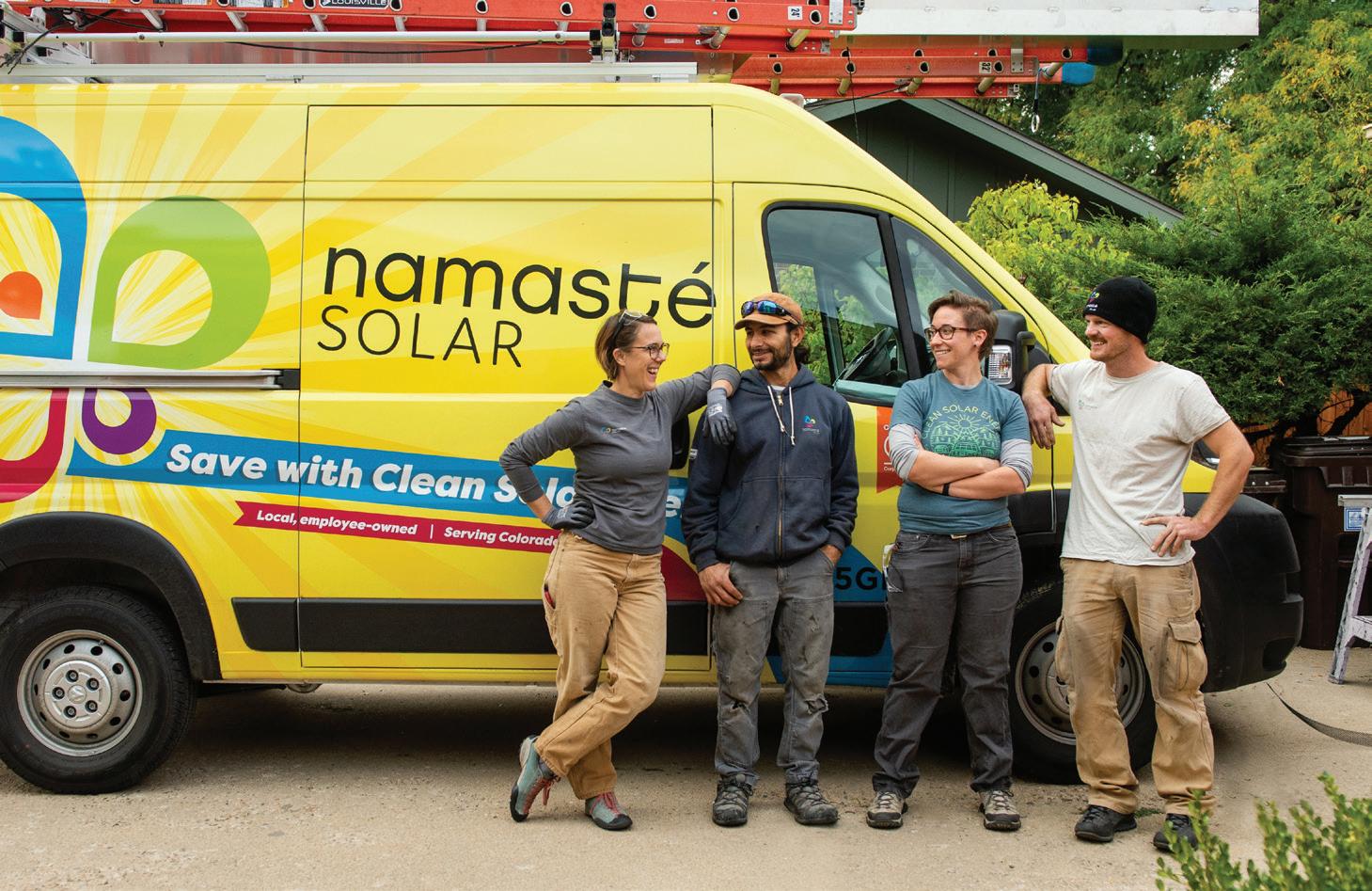
Want to help transform Boulder Weekly into an employee- and community-owned cooperative? Donate: bit.ly/BWcoop
“What about bringing profits to workers?”
Namaste, an employee-owned cooperative, strives to bring power to workers, too, through a policy of financial and operational transparency.
“The idea is that our owners have full access to all the information in our business,” Sharpe said. “Information is power. That’s one of the ways we tried to level the playing field.
“If you’re not at the table, you’re on the menu. We allow access to the table.”
By sharing profits and power, Namaste is fighting against the extractive nature of modern capitalism — appropriate for an organization focused on renewable energy and working to end extraction of fossil fuels from the earth.
“Namaste in some interpretations is the interconnectedness of all things,” Sharpe said. “The ideas of regenerative or circular economies: I think that’s all consistent with worker owners.
“You don’t have one or two people making huge profits. You have a lot of people building something that’s more sustainable.”
The company is celebrating its 20th year in business, notable in the volatile industry. In 2024, more than 100 solar companies declared bankruptcy, according to insurance provider Solar Insure.
“Twenty years as a business,” Sharpe said, “that feels like something to celebrate.”
Mead
Founded in 1949
Employee Stock Ownership Plan (ESOP) since 2022
~150 employees
One of the first emotions Susan January remembers upon hearing Leanin’ Tree would become employee owned was fear.
“The terrifying part was who is in charge now?” she recalled. “What’s our five-year plan?”
The greeting card company had been under the ownership of Ed Trumble and his family for more than 70 years when board members came to the Gunbarrel offices to make the surprise announcement.
“They sort of shared the news first with the management team, and then within a few hours, with the whole company workforce at an all-hands meeting,” January said. “It was kind of shocking and exciting and terrifying all at once.”
The shock and fear vanished quickly as employees looked around and realized their livelihoods were now in the hands of, as January put it, “seasoned people.”
“This is just a company [where] people come and they stay,” she said. “Our longest tenured employee just had her 43rd anniversary. We have people who have never worked anywhere else.” January herself has been with Leanin’ Tree for 28 years.
That “confidence in each other” helped folks settle into their new roles as co-owners, January explained. The company’s culture had always been highly respectful and collaborative, but being responsible for its future gave a greater urgency to the job.
“Rather than employees being invested in building the family’s wealth, it’s about building each other’s wealth and retirements,” she said. “This is an investment of all my fellow owners, and I need to be a good steward of it. It’s all of our money.
“Leanin’ Tree was built from the ground up; we’re heading into our 76th year. We certainly want to shepherd that forward. Who would be better stewards than people who have invested decades of their careers?”
Longmont
Established in 1996
Employee owned since 2022
74 employee owners
“Oh gosh, what is this going to be? Are they going to try to change everything?”
These were fair questions to have when the Pumphouse Brewery staff heard their restaurant was being bought out in 2022.
“That is a really important part of the succession puzzle,” said Conrad Legendy, the Pumphouse president who was brought on during the ownership transition. “You won’t have to think too hard to think of a restaurant that was great until the original owner sold it.”
But so far at the Longmont brew pub, those fears of change seem to be assuaged. When Pumphouse’s new parent company Teamshares acquired the restaurant, they had the same mission as they do with the 90 businesses they own across the country: Give it to the employees.
“They’re just looking for stable small businesses that have been around for a while and that don’t really have a succession plan in place,” Legendy said. Once Teamshares adds the businesses to their portfolio, their goal is to reach 80% employee ownership within 20 years by directly issuing stocks to employees.
“They have this core belief that if you give your employees a stake in the business, they’re going to care about it, and that is going to result in outsized financial performance for any given company,” Legendy said. “Having a stake in a company’s success is something which is fairly standard for many white collar workers, but it is not at all standard for most blue collar workers.”
This ethos manifests in the little touches workers have on the business, Legendy said, like planting flowers at the entrance, taking ownership over training new hires or testing new cocktail recipes to shake up the menu.
“Where I think there’s some magic is when you have people who don’t need to be asked to do something that benefits us collectively,” Legendy said, “who just want to do it, because this is more than a job. This is a career.”
Right now, just under 17% of the company belongs to the 74 employees at Pumphouse, and business is steady.
“I would like to think that over the last two-plus years, both our staff have gotten
comfortable with the fact that, OK, things are not fundamentally changing,” Legendy says, “But more importantly, our community and our guests that keep us in business, they’ve also seen that things are still good.
“The Pumphouse is still the Pumphouse.”
Established in 1993
Employee owned since 2015 44 employee owners
Whether you’re a brewer, beertender or busser, being employed at Longmont’s Left Hand Brewing Co. means one thing: ownership.
Left Hand has been a stalwart in the Boulder County craft beer scene since 1993 when founder Eric Wallace brought his passion for home brewing to the public. When Wallace opened the doors, he had a vision, not just to serve up frothy stouts, but to build a community and find employees that were just as dedicated to building a successful, independently owned small business as he was.
“That’s just always been his ethos,” said Jill Preston, Left Hand’s director of marketing. “His ultimate goal was to be at least partially employee owned, because then people are more invested.”
Left Hand first started its ESOP in 2015 to incentivize staff to own their work and invest in their futures — both personally and professionally.
Along with collecting dividends and saving for retirement, Left Hand’s model has opened the door for employees to join weekly meetings where they pore

over key performance indicators and financials.
“Working as a bartender or brewer, you can get stuck in your silo,” said accounting manager Nick Wiedrich, “but the ESOP encourages [employees] to learn and understand and to participate and to think about continuous improvements.”
This policy of transparency taps into the perspective of someone who rolls up their sleeves every day to provide creative solutions. Last summer, an employee suggested Left Hand start using the same can lid for every beer, rather than different lids depending on the brew inside. “It adds up to a few thousand dollars in savings each year,” Wiedrich said, a margin that directly impacts the employees’ financial benefit.

Right now, the 44 Left Hand employees invested in the ESOP own roughly 5-7% of the company. While it’s uncommon for lifelong workers to ride off into the sunset — the company had its first retirement just last year — there’s just as much value in the intangibles.
“Left Hand doesn’t have to be your only job you’ve ever had. But [we are] at least hopeful that when you leave here, you’ve gained more of these skills and understanding of how businesses operate,” Wiedrich said. “It’s all about trying to grow you, not only to be a better employee, but just understand stuff to help you.”
Established in 1980 Employee owned since 2020 ~29 employees
Aleah Matthews-Runner used to do their middle school homework at Trident, tucked into a corner table. Today, they are assistant manager and part-owner of the longtime coffee shop and bookstore, helping to make decisions about budgets and marketing.
“You get the craziest and coolest ideas from people who otherwise might not have a say,” they said. “It’s just a place where if you have a vision, you can make it a reality.”
There are 19 owners, a mix of employees who bought in and legacy owners. That works well for the 45-year-old bookstore and coffee shop, Matthews-Runner said, with employees involved in the day-to-day decision making and owners who hold more shares providing a backstop for any big, unexpected expenses including a potential, eventual purchase of the building at 909 Pearl St. “We can really have a system where just because we don’t all own the same amount of shares, we are able to speak on equal terms with everyone,” they said.
Having a window into business operations and finances has given MatthewsRunner a chance to flex skills learned in college and pick up some new ones. An “artsy” communications major, their job now involves thinking about profit and loss statements, hiring and retention, price setting and purchasing.
“I’ve learned a ton about what it takes to run a business,” they said. “Owning the means of production actually takes a lot of work.”
Matthews-Runner has become something of an evangelist for employee ownership, which they believe is the key to a strong community.
“It is really exciting to see more people getting into employee ownership, because it means we get more of a say in how our community is run,” they said. “In terms of having communities that can withstand economic toil, that’s where resilience comes from.”
Organizers and workers on where things stand, where they’re going and how they got here
BY KAYLEE HARTER
As votes to unionize rolled in from Boulder County employees Jan. 16, Brianna Barber was overcome with emotion.
“It just came in waves where I was like, crying, and then I’d be so excited, and then just crying,” said the organizer and county employee of six years. “So much blood, sweat and tears went into this.”
It was the culmination of a year and a half of organizing, hosting lunch-andlearns, meeting one-on-one with fellow employees and learning about the unionization process.
The 442-221 vote makes the new Boulder County Employees Union — representing more than 1,400 workers and affiliated with Communication Workers of America (CWA) — Colorado’s largest group of county workers to unionize since the 2022 passage of a state law that granted county employees collective bargaining rights and other worker protections.
According to Barber, it’s also one of the biggest collective bargaining units filed in the public or private sector in the last decade.
people, who range from caseworkers to communications staff, will have a vote on the contract.
“It is a pathway to make sure [workers] have the things they need in their workforce, because they bring so much talent,” said De Los Rios. “Often they are not adequately compensated, especially in a county that has such a high cost of living.
“The union belongs to everybody.”
BCEU is among the most recent group of BoCo workers to unionize, but they’re hardly the first. Some local groups have reached a contract, but some are still fighting for one while other efforts have gone belly up.
“Unions are not magic wands, but it is up to our bargaining unit to determine how strong our unit will be,” Barber said. “What we’ve seen with our organizing committee so far is that this is going to be a very strong union.”
Union membership in Colorado is growing, but with only about 7% of the state’s workforce in unions, that’s still below the 10% national average, according to Axios reporting.
At Spruce Confections, workers reached a contract about a year after voting to join the local Bakery,
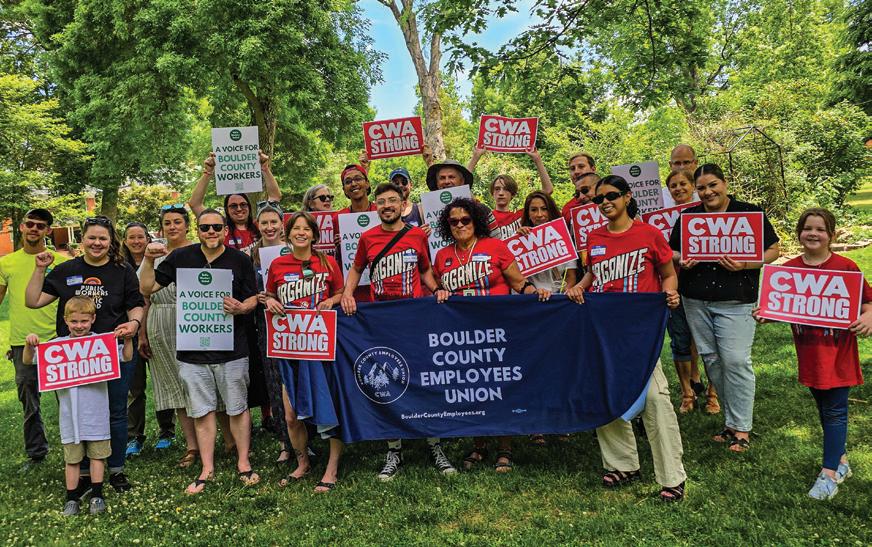
“What I know is first we celebrate,” said organizer and county employee Alberto De Los Rios. “And also acknowledge the work has just started.”
Now the union will begin bargaining with the county to reach a contract they hope will narrow the pay gap, increase health and pharmacy insurance, and provide new worker protections. All 1,400
Confectionery, Tobacco and Grain Millers Union (BCTGM) in 2021, according to Noah Hill, a barista and organizer.
Through the contract, Hill estimates about 100 workers got raises as well as improved job security, healthcare benefits and paid time off. In a few months, that contract will need to be renegotiated, but Hill said he’s feeling optimistic.
“In the beginning we had to have
some tough conversations with management and really push for what we needed,” he said. “But our position was always that a unionized shop is better for everyone. Better wages, better benefits, better job security means less turnover and more experienced workers, so everyone wins, and we have seen that in action. … We have a really good working relationship” with management.
Not all unionization efforts and contract negotiations go so smoothly.
Employees at Brewing Market, which has locations in Boulder, Lafayette and Longmont, voted to unionize and join the BCTGM in 2022. The effort came amid safety concerns and an alleged lack of transparency surrounding tips, according

“Ultimately, the union dissolved,” Malfer said. “The president (of the BCTGM) kind of asked us if we were interested in trying again, and most of us basically were like, ‘We have to move on.’
“We can’t spend another entire year making poverty wages and trying this again with no guarantee that it’s gonna go anywhere.”
A Colorado Sun analysis found last year that of the 143 petitions to form a union filed with the National Labor Relations Board since early 2020, only 63 won their election. Just 16 of those 63 confirmed they had reached a contract.
United Campus Workers Colorado, a union affiliated with CWA advocating for workers at CU and CSU, doesn’t have a contract at all; university employees don’t have collective bargaining rights under state law, and the university doesn’t formally recognize the union.
Still, they’ve had “pretty incredible wins” through collective action, said Patrick McKenzie, the president of UCW Colorado and a graduate worker at CU Boulder.
Among those wins are a stipend for resident advisors, dental coverage and a student fee waiver for graduate workers, which he said saved those employees thousands of dollars each year.
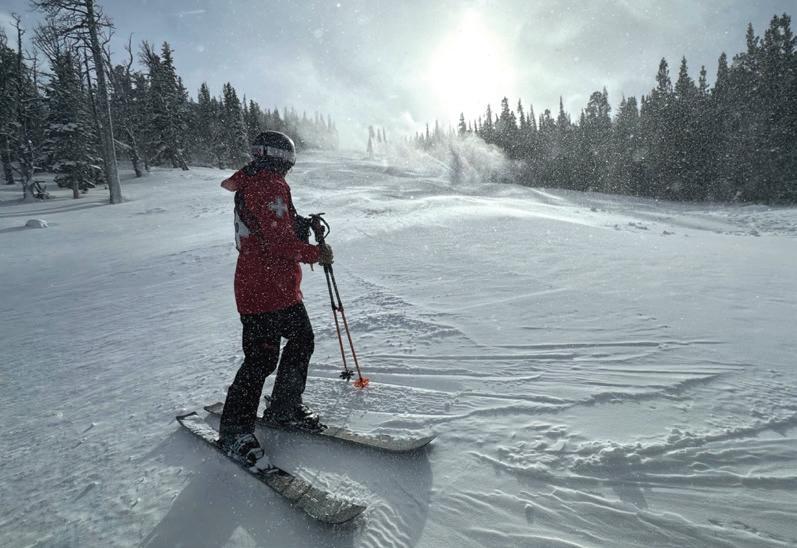
to Salem Malfer, a former Brewing Market employee and organizer. By Malfer’s account, ownership attempted to dissuade employees throughout unionization and contract negotiations.
After a large number of employees either quit or were fired, Malfer said, ownership at Brewing Market called for a recount of union members — a majority of employees was required.
The group has also been running a fair pay campaign, demanding a 20% cost of living adjustment for grad workers and university staff, a $14,000 perclass minimum for non-tenure track faculty, a $10,000 raise for each teaching professor promotion, and an annual 6% cost-ofliving adjustment for grad workers, staff and non-tenure track faculty. In fall 2023, the group held a walkout for their demands.
“It’s still ongoing work,” McKenzie said. “We’re really fighting for the wages we deserve as workers at the university in the hopes that improved working conditions will mean improved teaching conditions and learning conditions for our students.”
For the Eldora Ski Patrollers Union, the path has been anything but easy. Patrollers voted 29-3 in April 2024 to
unionize with the United Professional Ski Patrols of America. The Powdrowned ski resort initially objected to the vote, stalling efforts, before eventually pulling the objection a few months later.
Organizer Nick Lansing, in his fourth year as a patroller at the ski area, said the company used various union-busting tactics to hamstring efforts.
“A lot of us who were more intimately involved in the process were targeted in the workplace,” he said. “There were efforts to intimidate and to scare and to threaten even status of employment. It was really sad to see, honestly.”
Now, as the company and union have moved into contract negotiations, Lansing said the goal is to not dwell on the past and focus on “the greatest good that can come from this.”
“It’s kind of a balancing act, I think, between trying to keep your focus on the contract and building something for the team while remembering that there is still a power imbalance.”
Lansing and other organizers hope the contract will address things like wages and raises, working conditions and overtime thresholds.
“More so than any one line item,” he said, “it’s building something where, holistically, the people we represent are

satisfied and feel like we have made it easier for them to envision being here long term.”
Reaching a contract can take as little as three months, according to President of the Boulder Area Labor Council Alejandra Beatty. But sometimes it can take years.
Starbucks workers are negotiating a contract under Starbucks Workers United that would serve for all unionized stores. More than a dozen of the company’s Colorado stores have unionized, including five in Boulder County.
Holden Sheftel, a shift supervisor and organizer who was part of the effort at Boulder’s first unionized Starbucks at
2400 Baseline, said it can be difficult to make ends meet, especially in a city like Boulder. He recently moved in with a friend outside the city and now commutes to work.
“During COVID, wages just weren’t keeping up with what we needed them to be,” he said. “In Boulder, we had a costof-living adjustment and at some point during COVID, it went away — which was surprising, because that time period wasn’t known for prices going down. Workers talked to management, and nothing came of that.”
Negotiations began in April 2024; in December, workers across the country went on strike over unfair labor practices
and what they say was the company’s refusal to negotiate fair wages and raises. Now, there’s been “a lot of progress” on negotiations for a contract Sheftel hopes will include an hours guarantee and wage increases.
“A lot more can be done than I originally thought by people coming together and advocating for themselves,” he said. “It’s been amazing to learn … the amount of power that we actually have as a unit.”
Other organizers agreed that despite the challenges and frustration, solidarity and relationship building is the name of the game. They’ve been galvanized by the change made possible by working as a collective.
“I don’t think it’s a secret or controversial to say that working people in this country have been getting screwed for a long time,” said Spruce Confections’ Hill. “The federal minimum wage hasn’t gone up in 16 years, and a lot of people that I talk to have to choose between paying for groceries or rent. … I know how easy it is to get burned out when you’re thinking about the scale of that problem.
“The antidote that I’ve found is acting locally. It’s easier than you might think to make a real difference in your life and in the lives of the people who stand next to you every day.”


Nonprofits step up as life gets harder for working musicians on the Front Range
BY JEZY J. GRAY
Thumbing through the local music section at Paradise
Found in downtown Boulder, you’ll find rows of shiny, shrink-wrapped gems ready to change your brain chemistry forever. Maybe it’s the yacht-pop yearning of Denver duo Tennis, the synth-drenched death metal of Blood Incantation, the jamgrass jubilation of Leftover Salmon — or some strange new alchemy that hasn’t yet cast its spell on you.
But it’s not witchcraft bringing these sick sounds to your earbuds. The music we obsess over is the result of labor, and industry experts say the job is getting tougher. As the rising cost of living continues to pinch households across the U.S., the delicate dance of recording, touring and promotion is becoming an increasingly complex math problem for working-class musicians on the Front Range and beyond.
the Same, the 34-year-old from Kittredge supplements his income by putting in roughly 25 hours a week as a sales associate at Patagonia.
“I’ve been doing [music] for a while, so I’m able to keep a consistent amount of shows on my calendar — that’s really helpful,” Dethlefs says. “But if I were starting out, I’d be really afraid, at least

at this moment, to just be trying to rely on music.”
Of course, making music your livelihood isn’t impossible. Local favorites Big Richard, an all-women bluegrass ensemble that has been burning up the festival circuit in Colorado and beyond since 2021, rely largely on income generated from the band and solo work to get by.
The outfit’s Grammy-winning cellist Joy Adams says she manages to stay afloat by pursuing all opportunities with a similar urgency — whether that’s a New Year’s Eve show at Nashville’s famed Ryman Auditorium or a gig the next day at Busey Brews Smokehouse & Brewery in Nederland.
“That’s just the name of the game,” Adams, 36, says. “To be a successful musician and pay the bills, you have to let go of this idea: ‘Oh, I’ve made it, and I have this standard of gigs now.’ You need to take any gig and give it the same good energy you gave everything else.”
Even with a packed calendar of shows, when it comes to the ability to patch together a living on music alone, many local artists who don’t have the name recognition of a marquee act like Big Richard say the
“It’s more expensive than ever to create new music,” says musician, nonprofit professional and artist advocate Kirsten Vermulen. “The assumption is that folks have a home studio and anybody can make music today and become famous on TikTok. But if you are really dedicated to the craft, working with the industry here in Colorado, you’re going to spend a good $10-to-$20,000 to put a full album out. Coming up with that kind of capital when you’re piecing together shows as a regional artist is really challenging.”
That’s why Vermulen volunteers as executive director of the Colorado chapter of Sonic Guild, an Austin, Texasbased music patronage nonprofit founded in 2013 whose mission is to ease the financial burden for working performers. Borrowing from the long tradition of
patrons underwriting “high art” like orchestras and symphonies, the idea is to leverage a broad base of donors to help make the job of musician a more viable career path through grants, professional support and performance opportunities for emerging artists — including Boulder-bred acts like Pink Fuzz and Megan Burtt.
“There are very few artists in Colorado who are able to solely focus on their art, which is frustrating and disappointing given the talent we have here,” Vermulen says. “The artists I have the pleasure and privilege of engaging with through Sonic Guild are juggling multiple careers.”
‘I’D BE REALLY AFRAID’
Denver-based indie folk artist Patrick Dethlefs knows something about that juggling act. Gigging throughout the region since the 2010 release of his bright and bouncy debut full-length Stays

scene ain’t what it used to be. That’s especially true in Boulder County, where a heady mix of sky-high rents and dwindling opportunities have left some homegrown acts feeling squeezed like never before.
“I was talking the other day in the green room with a couple bands who played in the ’90s out here, and they said it used to be that you could find a gig on a Wednesday, Thursday, Friday, Saturday, and those gigs would pay [up to] $300 per person,” says Dave Kennedy, founder and CEO of the Boulder nonprofit venue Roots Music Project. “Now they’re getting $100 to $200 per person, and there’s just not as many gigs.”
In some respects, the uphill battle faced by Front Range musicians isn’t unique. The health of local scenes varies from region to region and changes with the times, but as streaming juggernauts like Spotify continue to demonetize the artform writ large — offering an average payout between $0.003 and $0.005 per stream — the prospect of making music your day job is becoming a pipe dream for many creatives regardless of where they live.
“No artist is making money from Spotify. They’re making a little bit more on Apple Music or Tidal or whatever, but the only way a band actually makes money is if you buy a T-shirt or a record,” says Lafayette resident Ben Sooy, 39, frontman of local emo outfit A Place for Owls. “Even if you just buy the album digitally on Bandcamp or iTunes, that’s a hell of a lot more money actually going to the artist than if you just stream it.”
“We played Treefort [Music Festival] a couple years ago, and we just didn’t realize how far away Boise was — or Salt Lake City, for that matter. It’s a long way to go,” says Michael Seman of the Loveland-based noise rock band Shiny Around the Edges. “It’s not like the Northeast or the Midwest, where it’s really easy to hit major markets within a short period of time.”

With this tangle in mind, Vermulen says Sonic Guild is looking to help Colorado acts take their show on the road through a new grant program she hopes to launch this year to underwrite touring expenses. It’s a model that first took root in the nonprofit’s Seattle chapter, where she sees a key difference in terms of cultural mindset and community support.
Citing the so-called “Colorado Paradox,” a term used by some economists to describe the state’s ability to attract out-of-state workers while strug-
most-visited venue in the world — it is a part of our lifestyle, but I do not believe it’s part of our identity, something we believe culturally is worth preserving, like it is in places like Seattle and Austin.”
When it comes to the value of that preservation, Seman says it’s a two-way street. In addition to his work as singerguitarist in Shiny Around the Edges — a long-running art rock project launched with his wife Jennifer Koshatka Seman near the turn of the century in the thriving DIY music community of Denton, Texas — the 56-year-old musician also works as an assistant professor of arts management at Colorado State University, where he studies the economic impact of local music ecosystems.

On top of these universal roadblocks to fair compensation, Colorado presents a cluster of unique challenges when it comes to making a living as a working musician. One of these is also the state’s greatest asset: the mountains. Isolated by a yawning gulf of rugged topography, the prospect of touring can be a difficult proposition for artists here.
gling to incubate homegrown talent across industries, Vermulen says our local music scenes suffer from a similar problem.
“We don’t identify in Colorado as a music community, even though we have a really high concentration of successful independent venues,” she says. “Red Rocks is typically the first or second
“I tell city leaders you don’t want a music scene that’s super successful just because you may have the next superstar,” he says. “I mean, that may happen, but today you have this collection of people who are running your economy: lawyers, teachers, designers, architects — they’re all involved in music scenes, and it keeps them in the city.”
According to Seman’s research, the calculus is pretty simple: When local musicians thrive, so do the places they call home. He says municipalities can
help by financially supporting all-ages venues and music collectives like The Vera Project in Seattle and the privately funded Music District in Fort Collins.
Back at Roots Music Project, which offers up to 12 days of rent-free space per year through the Boulder Arts Commission waiver program, owner Dave Kennedy says artists can do themselves a favor by recognizing their own value.
“Stop undercutting each other. Raise your rates. Hold out for more, because too many artists will do it too cheap. Don’t be the bargain band,” says Kennedy, who plays guitar with local blues legend Rex Peoples. “There’s not a union for local bands, but they sure could use one. It’s so separated. Artists aren’t talking to each other, but they should compare notes more and say, ‘Yeah, we need to raise our rates together.’”
That sense of a shared struggle motivated Sooy of A Place for Owls to launch a mutual aid nonprofit for DIY musicians on the Front Range, with the stated mission of “holding all things in common” by pooling funds for vinyl pressing, merch production and more. He’s waiting on tax documents from the state that will allow the organization to begin fundraising in earnest, but considering the mission to emphasize collective care in a world built on the profit motive, he arrived at a name early on: Holy Fool.
“Capitalism teaches you that other artists are your competition, and it’s a zerosum game: If they get a win, that means you lose,” says Sooy, who works as a staff musician at The Table Church in Lafayette 20 hours a week. “That’s just not the way real life is actually supposed to work. The healthiest communities of creative people are ones where they are your family and collaborators; they’re rooting for you to win. Every win for somebody else in your community is kind of a win for you.
“Most capitalists will look at that and be like, ‘Well, you’re a dum-dum. You’re an idiot,’” he continues. “But that’s actually the holiest and most righteous way to be in the world.”
BY JUSTIN CRIADO
Atell-all documentary about the Deborah Solo Trio would be pretty tame.
There are no stories of behind-thescenes strife between bandmates or creative differences leading to volcanic blowups that would typically make for dramatic Behind the Music fodder. In fact, to hear them tell it, everything in the Denverbased indie group’s camp has been copacetic since coming together for their 2017 debut Real Love
“I’m just so grateful to work with these guys — we write our songs together, we’re just best friends,” Solo, 40, says of her relationship with cellist Kari Clifton and multi-instrumentalist Chad “Chadzilla” Johnson. “We collaborate so well. Everyone has skills to bring, and we just lean on each other.”
Solo initially teamed up with Clifton before Johnson joined the fold as a drummer in 2018. The outfit’s 2021 follow-up record, Not Your Daisy, offered the first glimpse at the new Deborah Solo Trio and their shift from standard folksy acoustic tunes to the current alt-rock flavor of the band’s latest album, 1 a.m. Parade, released last February.
Written collectively during meetups at Johnson’s 25 BPM Studio in Washington Park, the new album also marked a shift in lyrical themes from the previous record. For Not Your Daisy, the approach centered around opening up about personal struggles and each member’s mental health journey.
“There were song ideas I thought were really scary to say and really scary to write,” Solo says, pointing to tracks “I Don’t Have To” and “What Do You Hope Gain?” which grapple with forgiveness and navigating the day-to-day realities of living with anxiety.
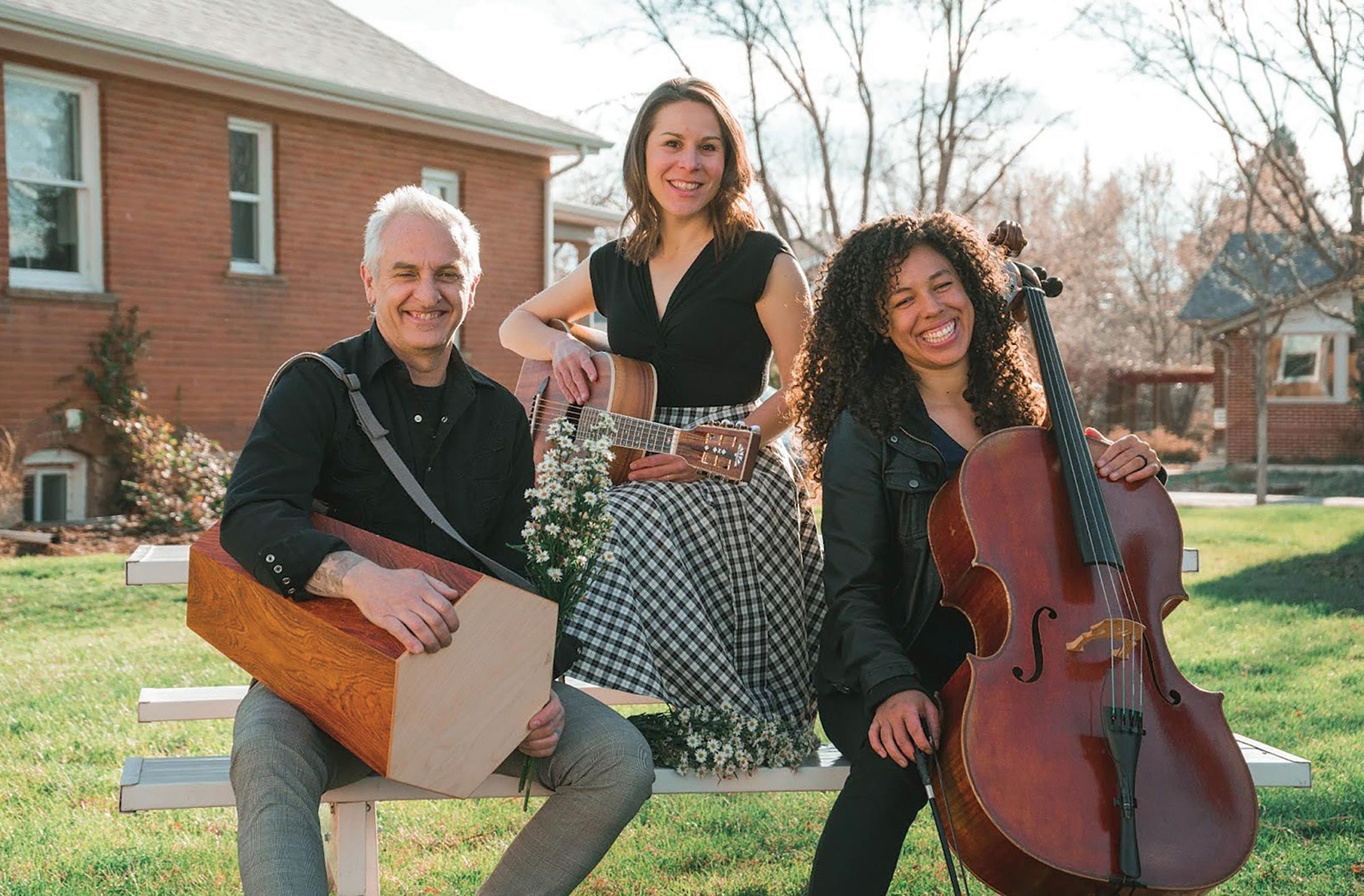
“There were a couple ones we wrote about mental health and really dug in collaboratively and started writing music from top to bottom as a band and not really having that singer-songwriter, ‘Let’s make this an arrangement’ vibe anymore.’”
1 a.m. Parade is more fully realized sonically — due in part to Johnson’s prowess on the drums, guitar, bass and piano — and emotionally, thanks to the collaborative songwriting sessions Clifton considers “group therapy.”
“One of us will be going through something, and usually we all have different experiences we can relate to,” the 33-year-old classically trained cellist explains. “We’re all sharing our experiences and getting to the root of what we want to portray. It’s usually bits and pieces from all our experiences.”
Clifton shares the story behind the song “If You Break,” which at first seems like a straightforward heartbreak ballad — but it’s actually an exploration of her feelings following what she thought was a “fatal accident” suffered by her beloved cello.
“I talk about it like it’s a person. My cello had this huge, two-foot crack in it, and I thought it wasn’t going to be able to be repaired,” she says. “The song is really about the shock of the loss and having to say goodbye to something I wasn’t ready to.”
Thankfully, Clifton’s cello is back in action after a six-month stint in sick bay, though she used a rental replacement during part of the 1 a.m. Parade recording stretch. Talking about it now, Solo and Johnson are just as relieved as Clifton. It’s that type of collective empathy that helps the Deborah Solo Trio churn out such soulful serenades.
“I joke online that Not Your Daisy feels like, ‘OK, these people are in therapy,’” Solo says. “But then 1 a.m. Parade feels like, ‘Oh, yeah, these people have been to therapy. They’ve done the work.’”
Dwelling on big feelings doesn’t have to be a bummer. For the Deborah Solo Trio, it also includes reflecting on the positives of their communal bond. The band’s latest single, “Take Me Away,” released last month, is upbeat in that sense.
“[It’s] about how depression can come for us at any time, regardless of what’s going on in our lives, but there are people in our lives that help alleviate that loneliness,” Solo explains. “It’s OK to lean on them and let them love you and take you away from the sadness.”
Johnson, 53, who guesstimates he’s played in hundreds of local bands over the years, shares a telling sentiment about his current crew.
“This is the most collaborative group I’ve ever worked with,” he says. “When you have the freedom and you know you’re in a room with like-minded, loving people who care about you, almost every idea we have is the right one.”
Deborah Solo Trio with Chariots & Charioteers and the Dollhouse Thieves. 6:30 p.m. Saturday, Feb. 1, Roots Music Project, 4747 Pearl St., Suite V3A, Boulder. $19
BY MICHAEL J. CASEY
It’s like a grade school love note: Do you like me? (check one)
Yes No Maybe
And right now, Boulder is still waiting patiently for a reply.
On Jan. 23, the 2025 Sundance Film Festival got underway with no announcement as to the future of the fest. Three cities are in the running: Boulder, Cincinnati and the one-two punch of Salt Lake and Park City, Utah, for the next 10 years of Sundance beginning in 2027. The process, which began roughly a year ago, won’t see a resolution until after the festival, though the announcement might not come until late winter or early spring.
For local businesses and anyone interested in the future of cinema along the Front Range, hope springs eternal. But back in the snowy Wasatch Mountains of Park City, the 41st Sundance Film Festival kicked off under the cloud of smoke from Los Angeles. The Sundance Institute’s founding director and honoree of this year’s gala, Michelle Satter, lost her home to the Palisades Fire, and Meera Menon and Paul Gleason, the husband and wife team behind the zombie apocalypse drama, Didn’t Die, lost theirs to the Eaton Fire. Add to the mix the announcements of the 97th Academy Award Nominations, which were delayed because of the fires and announced on the morning of Sundance’s opening, plus the general unease about the political climate, and it seems like minds were constantly elsewhere.
But for those who packed the theaters and streets of Park City, the movies
managed to distract in 90 and 120-minute increments.
That rang true even in the films where the collision of narrative and reality clanged the loudest. In Rebuilding, a rancher (Josh O’Connor) looks for a way forward after a forest fire takes his Southern Colorado home.
“Film is an act of imagination,” Rebuilding director Max Walker-Silverman told the audience of nearly 1,300 attending the movie’s world premiere. “It’s the bright light in a dark room. So I made this film, because only through imagining a better world can we hope for one. And only through hoping for a better world can we fight for one.”

This sentiment permeates Kevin Macdonald’s electrifying documentary One to One: John & Yoko — 18 crucial months in the lives of Lennon and Ono in the tumultuous early 1970s — and SLY LIVES! (aka the Burden of Black Genius) from musician and filmmaker Ahmir “Questlove” Thompson about the multi-talented artist behind the essential funk band Sly & the Family Stone. Both
are stories you think you know. And, in both, the filmmakers plunder their familiar subjects for overlooked and forgotten moments that tell us so much about who we are as an American society.
You’ll find traces of this theme in The Librarians, Kim A. Snyder’s by-the-numbers reportage doc about the organizations behind the fight to ban books with LGBTQ+ and BIPOC content in public school libraries, and in the formally innovative The Perfect Neighbor. In the latter, director Geeta Gandbhir constructs
the doc almost exclusively from Florida Police Officer body cam footage to show how a disagreement between neighbors escalated into something tragic. Neighbor is the kind of movie that lures you into thinking you know what’s happening before Gandbhir starts turning the screws ever so slightly.
The Perfect Neighbor should be a contender for the Grand Jury Prize for Best Documentary, maybe even one of the five nominated for next year’s Oscar. But I have a feeling few will want to see the movie simply because the surface appears familiar. That won’t be the case with Laura Casabé’s The Virgin of Quarry Lake, a teen coming-of-age story set in a steamy and rotting Buenos Aires suburb in 2001. The film is a tricky little thing, not quite drama and not quite horror. It’s a movie that plays in the same crooked sandbox David Lynch built. It’s magnificent.

The Sundance Film Festival continues through Feb. 2. On Jan. 30, a selection of the lineup will be available for online screening at festival.sundance. org. Tickets are limited, but there’s plenty to see while those of us in Boulder — and Cincinnati and Utah — remain in a wait-and-see mentality.







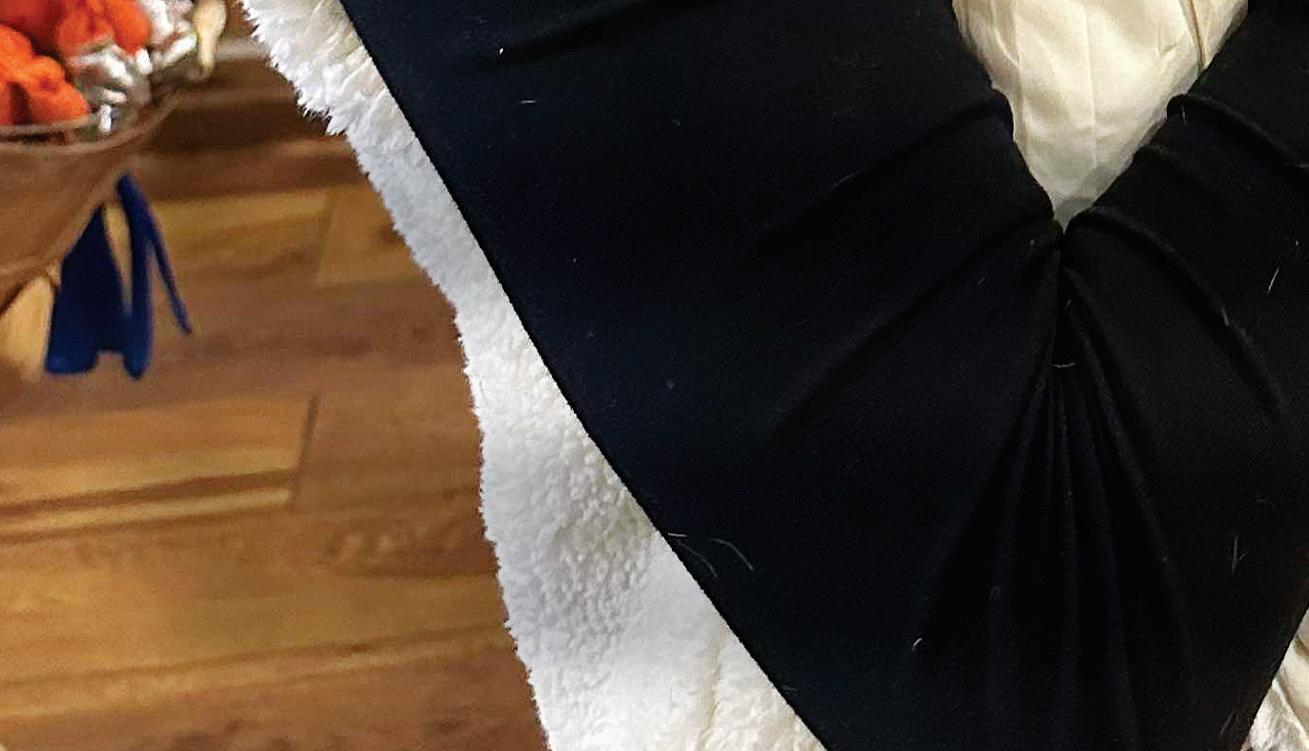





On our 31st anniversary, Boulder Weekly celebrates the businesses that make our community special

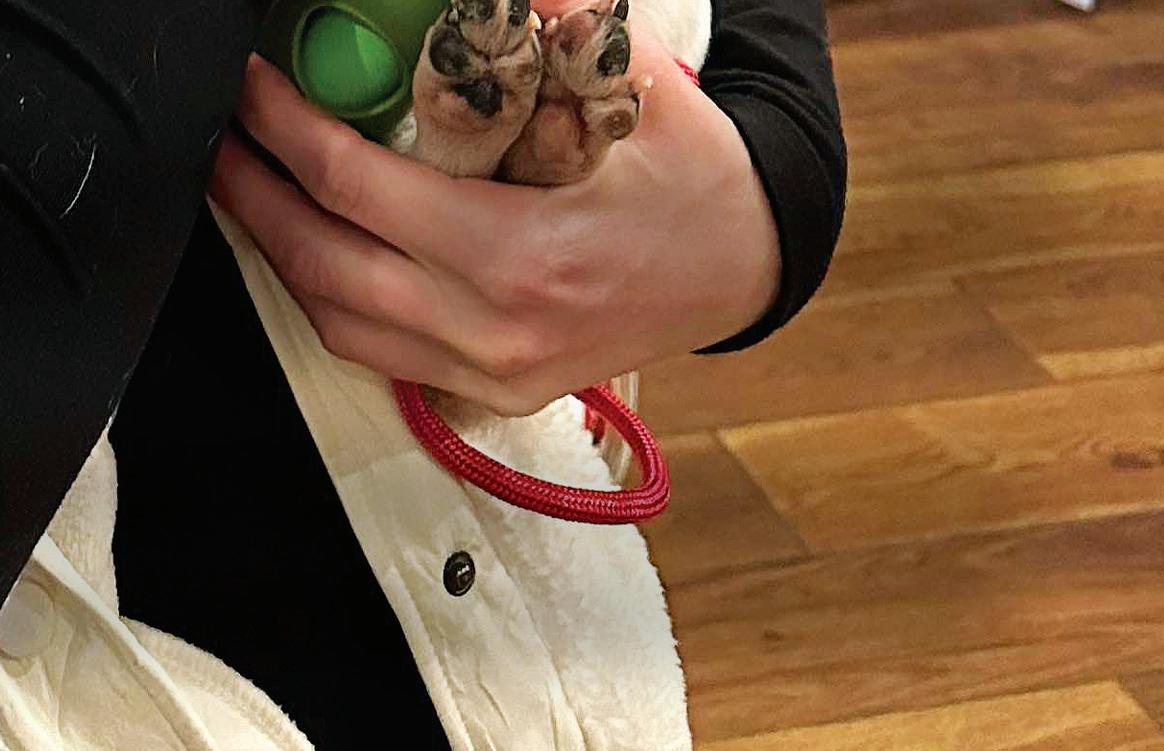



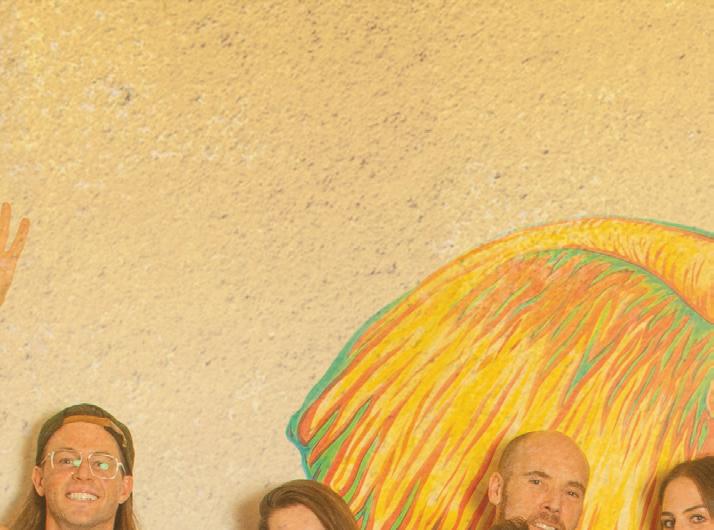
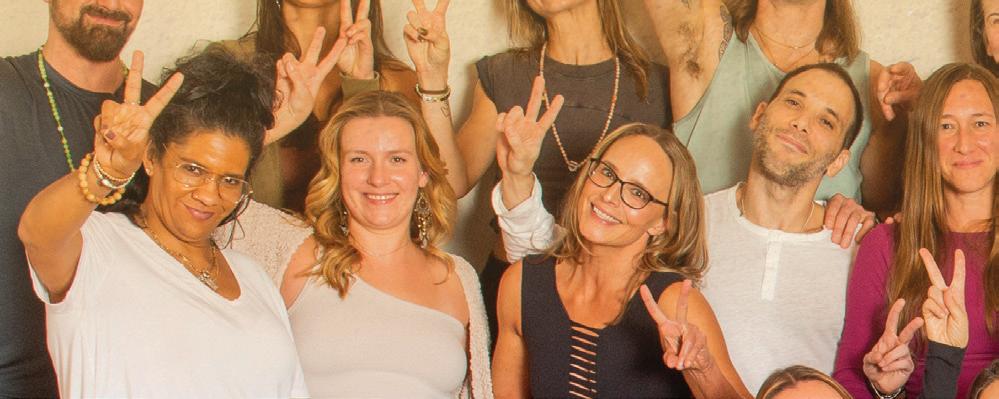









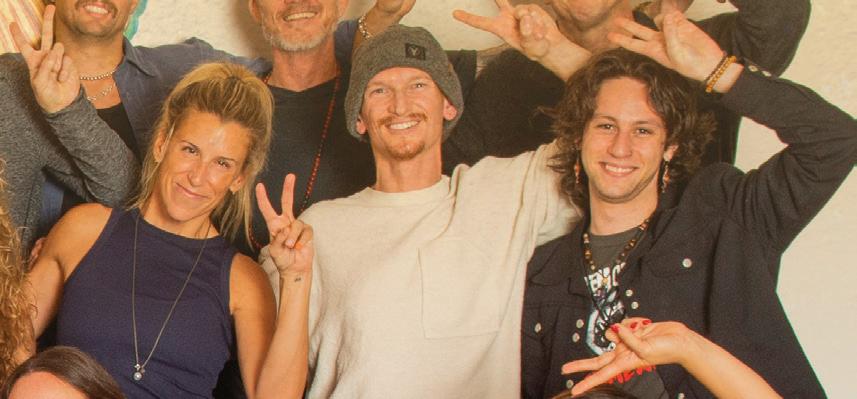


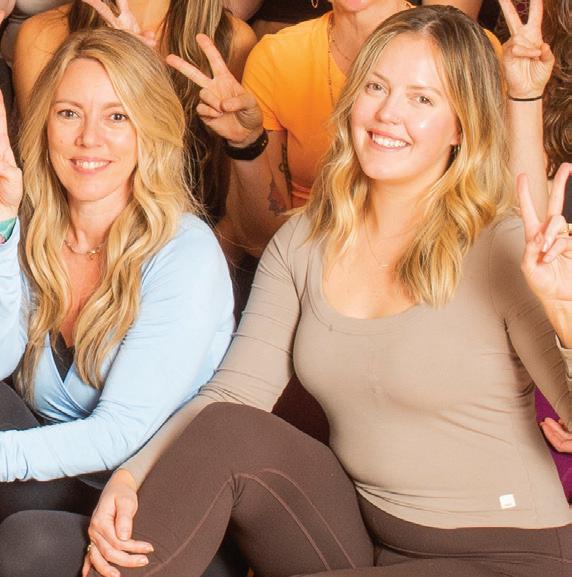
























































JANUARY 30, 2025
PUBLISHER: Stewart Sallo
SALES AND MARKETING
DIRECTOR OF ADVERTISING: Kellie Robinson
SENIOR ACCOUNT EXECUTIVE: Matthew Fischer
ACCOUNT EXECUTIVES: Chris Allred, Austen Lopp
SPECIAL PROJECTS MANAGER: Carter Ferryman
MRS. BOULDER WEEKLY: Mari Nevar
PRODUCTION
CREATIVE DIRECTOR: Erik Wogen
GRAPHIC DESIGNER: Chris Sawyer
CIRCULATION MANAGER: Cal Winn
CIRCULATION TEAM:
Sue Butcher, Ken Rott, Chris Bauer
BUSINESS OFFICE
BOOKKEEPER: Austen Lopp
FOUNDER / CEO: Stewart Sallo
As Boulder County’s only independently owned newspaper, Boulder Weekly is dedicated to illuminating truth, advancing justice and protecting the First Amendment through ethical, no-holds-barred journalism and thought-provoking opinion writing. Free every Thursday since 1993, the Weekly also offers the county’s most comprehensive arts and entertainment coverage. Read the print version, or visit boulderweekly. com. Boulder Weekly does not accept unsolicited editorial submissions. If you’re interested in writing for the paper, please send queries to: editorial@boulderweekly.com. Any materials sent to Boulder Weekly become the property of the newspaper.
1495 Canyon Boulevard, Suite CO 1, Boulder, CO 80302
Phone: 303.494.5511, FAX: 303.494.2585 editorial@boulderweekly.com www.boulderweekly.com
Boulder Weekly is published every Thursday. No portion may be reproduced in any form without written permission from the publisher. ©2024 Boulder Weekly, Inc., all rights reserved.
Boulder Weekly welcomes your correspondence via email (letters@boulderweekly.com). Preference will be given to short letters (under 300 words) that deal with recent stories or local issues, and letters may be edited for style, length and libel. Letters should include your name, address and telephone number for verification. We do not publish anonymous letters or those signed with pseudonyms. Letters become the property of Boulder Weekly and will be published on our website.

In the movie, Fiddler on the Roof — which happens to be at the top of my proverbial list of movies I would take with me to a deserted island — the central character, Tevye, attempts to hold firm to traditions as a means of making some sense of the often nonsensical nature of life. During the opening scene, Tevye acknowledges that regardless of the origin of a tradition, following it is nothing short of an existential necessity, adding that “because of our traditions, every one of us knows who he is.”

which we invited the entire community to join us in celebrating our unique brand of independent, locally based journalism. Those events eventually morphed into our Best of Boulder awards ceremonies, at which we handed out framed plaques to our Best of Boulder winners, and continued the tradition of inviting the entire community to join us in celebrating the businesses and individuals who make Boulder County the very singular place it is.
ing its 40th anniversary), to Trident Booksellers and Café (since 1979), to Mountain Sun (coming up on 32 years), to the 116-year-old Hotel Boulderado. Since there are far too many for us to name, we thought we would allow local businesses to tell their own stories in the pages of our Anniversary Edition.
What Tevye discovers over the course of the story, though, is that “who he is” is not static: It is a moving target, as the nature of the human experience is ever changing. This is depicted through the marriages of his three older daughters, who select a partner independently of the tradition of having a husband chosen for them, in one case even marrying outside of the Jewish faith.
From the inception of Boulder Weekly 31 years ago, we established a tradition of celebrating our anniversaries. We felt it was important to take an annual pause in the midst of our relentless weekly publishing schedule to reflect and assess where we had been, where we were and where we were headed as an organization. Initially, this took the form of a special anniversary edition, eventually evolving into an annual anniversary party, in
Then the pandemic hit, and like Tevye we recognized that our traditions had to change. We no longer had the ability to hold large-scale public events, and even after things reopened, the Weekly was too involved in retooling our operation and recovering from an existential crisis to continue producing large-scale events. (We still hope to resume these in the near future.)
Still, the need to pause and reflect, and a desire to celebrate our fellow Boulder County businesses have remained intact. Consequently, this year, with our 31st anniversary, we are starting a new tradition: Instead of a spotlight on the Weekly, we are turning the focus to the longevity and uniqueness of other local businesses.
There are plenty of candidates for this, ranging from Peppercorn (founded in 1977) to the Sundown Saloon (celebrat-

This year, we are featuring Farfel’s Farm & Rescue on the cover of this special issue. Farfel’s is celebrating their 20th anniversary this year, and is one of the most unique businesses in our community.
Founded and owned by local residents Jeff and Sandy Richey, Farfel’s not only provides the highest quality pet products for dogs and cats, they have become a national leader in the rescue of at-risk dogs. To date, they have rescued more than 5,000 dogs from six states and three countries. Their retail store is at 906 Pearl St., and if you’re interested in adopting a dog, visit their website at Farfels.com.
One tradition that has never changed at the Weekly is our role as the champion of local business. In the pages that follow, you will learn about the struggles and successes some of our local businesses have experienced along the way that may cause you to be more mindful of the need to support them.
In Fiddler, Tevye humorously admits that he doesn’t know how some of his community’s traditions got started. Apparently, there was no local medium in their Easter European “shtetl” (village) in the early 1900s.
If you value having a locally owned media organization in your community that creates a written record of such things, continue reading Boulder Weekly — in print and/or online at boulderweekly.com — subscribe to our various newsletters, peruse the offerings at our online marketplace, BestofBoulderDeals .com, and consider making a contribution to keep independent journalism alive and well in the Boulder County community.
Most importantly, please patronize our advertisers and tell them that you appreciate their support of local media.
— Stewart Sallo, publisher




NORRØNA
1130 Pearl St., Boulder
Welcome to Norrøna Concept Store Boulder! Norrøna is a premium outdoor brand born in Norway’s unique nature and challenging weather conditions. Using Norway as our laboratory, we create clothing and gear for skiing, snowboarding, hiking, climbing, trail running, mountain biking and surfing. Since 1929, we’ve crafted products built on quality, design, functionality and responsibility. Still family-owned, Norrøna is led by Jørgen Jørgensen. He is the fourth-generation Jørgensen to own and lead Norrøna — and a passionate outdoor enthusiast himself.
Our Concept Store on Pearl Street was the first we opened in the U.S. and we’re proud to offer expert knowledge and a wide selection of products here. Welcome to our store — and welcome to nature!
HAZEL’S
1955 28th St., Boulder
303-447-1955 hazelsboulder.com

One of the best things about shopping at Hazel’s Beverage World is our renowned Flight Crew! From helping you select the perfect wine for your dinner party to breaking down the mash build of an enticing new Whiskey, to recommending a special release beer you will love, our expert staff will help you find the perfect match. Picking up a mass-produced wine or beer at a grocery store may be convenient, but you won’t find the selection or service you will at Hazel’s. Keep your dinner parties classy, your Whiskey strong, and your dollars local when you shop Hazel’s for beer, wine, spirits and more, all at our everyday low prices!
BUSABA
4800 Baseline Road, Boulder
720-350-4927

Busaba means “flower” in Thai — life emerging from the elements growing toward the light and emanating its brilliant colors as a gift. Our family has lovingly created this restaurant as our “busaba” and are offering it to you with flavorful food as our gift. At Busaba, we are committed to preserving the environment and strive to reduce waste. Our goal is to create all dishes with authentic Thai taste using fresh ingredients locally available. Please come enjoy our love and pride. Louisville, Baseline in Boulder, Pearl Street in Boulder, Erie and now open in Longmont.






7275 Valmont Road, Boulder
303-442-2602
cottonwoodkennels.com

Here at Cottonwood Kennels, we believe that each pet is an individual and should be cared for based on their physical and emotional needs. We provide a balance between social enrichment, individual activities and rest. We treat each pet as we would our own, and we believe that open communication with their owners is crucial to success.
Cottonwood Kennels has been in operation since 1972, and although our business has grown, we are still about the person-to-pet connection. With upward of 40 staff members year-round, there is always lots of love to go around to the furry friends that visit us.
1201 S. Sunset St., Longmont 303-776-6605
frontrangeindoorfleamarket.com

Locally owned and operated since 1989, Front Range Mercantile Flea Market offers a truly unique shopping experience this holiday season. Our 21,000-square-foot showroom features more than 90 dealers, each with their own variety of offerings. Front Range Flea Market is your one-stop shop to find the perfect gift for everyone on your list this year. We have fantastic gift ideas for all ages, 0-99! From the funky to the functional, grand to giddy, you’ll find the area’s most deliriously delightful shopping at Front Range Mercantile Flea Market. Stop in today, because what you are looking for might be gone tomorrow! Open Monday to Saturday, 9 a.m. to 6 p.m.
700 Ken Pratt Blvd., Suite 210, Longmont 720-745-8941

Asia Bazaar is the ultimate destination for those seeking authentic Asian products with the convenience of shopping locally. Our store offers an extensive variety of groceries from across Asia, catering to diverse culinary traditions. From fresh produce, exotic spices, and specialty snacks to premium teas and sauces, we have everything you need to recreate your favorite dishes.
At Asia Bazaar, convenience meets quality. With organized aisles and friendly staff, shopping is a breeze. Whether you’re an adventurous foodie or a home chef, our wide selection ensures you’ll find something special. Experience the flavors of Asia, all under one roof, at Asia Bazaar.

1377 Forest Park Circle, Suite 101, Lafayette
303-604-6351
morningglorylafayette.com

I love beautiful food, a lovely atmosphere and fun! Growing up in the restaurant industry only increased my love of ALL those things. My mom (Jules) introduced me to an incredible amount of food knowledge from an early age. She inspired me to always try new and exciting foods, from rattlesnake to sushi (at age 5). I have very early memories of being in the kitchen and directing her sous chefs on meat temperatures and plating (precocious much?).
I love food so much and it makes me incredibly happy to serve beautiful and plentiful dishes at Morning Glory. The restaurant itself is one of my great loves, besides Gizmo my pug of course. The restaurant industry can be incredibly difficult but I find it very fulfilling. I like nothing more than making someone’s day better with a good nutritious meal, a delicious cocktail and fantastic conversation. Food equates to love in my mind.
I think we serve the community’s belly with our menu and their soul with our hospitality. Please come join us for a filling and friendly meal! Thanks! – Lilly
20358 Rangeview Drive, Morrison
303-887-3035
abcandles.com
Amy.Becca@abcandlesco.com

A &B Candles is here to provide you with “aromatherapy” all year round. Amy Stadstad is both sole owner and creator of the artisanal candles, wax melts and room/linen sprays. Our 35+ fragrances are inspired by both locations and experiences all over Colorado!
This is a platform to merge science and nature, as Amy’s background as a pharmacist leads to unique combinations of natural oils for scents you’ve never dreamed of!
Along with individual orders to enhance your home and office, we can also customize wedding/party favors or visit you for an in-home “make-your-own” party! Let us help you breathe in the spirit of Colorado.










local ingredients,




1117 pearl street boulder, CO



palate - carnivore to vegan, cocktails favorite spot
@highcountry.boulder





303-284-4473 and inspired dishes for every awaits.








489 N. Hwy. 287 #100, Lafayette
303-665-9242
sushiajilafayette.com

Sushi Aji has been dedicated in offering the most memorable dining experience. We use only the freshest and most natural ingredients in a healthier way to provide the best food. With traditional Japanese decoration filling up the restaurant, you will not only enjoy your meal but also the authentic atmosphere. All the staff in Sushi Aji greet you with the warmest welcome. We guarantee you with friendly and timely service and welcome you to experience the best dinner in our fairyland!
The owner and all staff will greet you with the warmest welcome, whether you are a habitual patron or come for the first time. We have made painstaking efforts to create the tidiest and cleanest dining place, and guarantee you with friendly and timely service.
1309 College Ave., Boulder 303-449-4611
110 Main St., Unit 300, Longmont 303-776-9333
7735 W. 92nd Ave., Westminster 303-421-5700

Tribal Rites, the original Tribal Rites established in 1994, has been treating thousands of customers to exceptional work for over 30 years. With three locations in Longmont, Westminster and Boulder, we have grown to become a leader in Colorado. Tribal Rites has been recognized with multiple “Best of CU & Boulder” awards, and we take pride in our position as an elite tattoo and piercing company. The Tribal Rites Boulder location resides right next to the West end of the University of Colorado at 13th and College Ave. The Boulder shop is our oldest location. This location has our largest selection of body jewelry and the largest selection of organics.
Our shops offer a wide range of services, including awesome tattoos, body piercings, and body jewelry, catering to Denver, Boulder and surrounding areas.
303-570-7999
mountainsunpub.com

Mountain Sun Pubs, located in Boulder, Colorado, is a vibrant, locally-owned brewery and pub known for its unique atmosphere and craft beer selection. Established in 1993, it has become a staple in the community, attracting both locals and visitors alike. The pub boasts a cozy interior adorned with rustic decor, fostering a welcoming environment. Its extensive menu features delicious pub fare, including burgers, sandwiches, and vegetarian options. Mountain Sun is particularly renowned for its house-brewed beers, which range from hoppy IPAs to smooth stouts. With live music and events, it provides a lively environment for friends and families to gather.
19336 Goddard Ranch Ct., #220, Morrison
Call/Text: 970-846-7448

Born in Steamboat Springs in 2006 as the Steamboat Toffee Company™ (currently our hiatus brand), Red Rocks Toffee Company™ has developed a deeply delightful contrast-confection-people-touching manner.
We believe creative and personal expression are both key to a life well lived, as well as embracing our community during that journey. We love to make delicious treats that bring people together, fostering affection, sharing time, and making the act of gift-giving an uplifting experience for all. We love and live to be a part of your inclusions and connections.
“A rising tide lifts all boats”


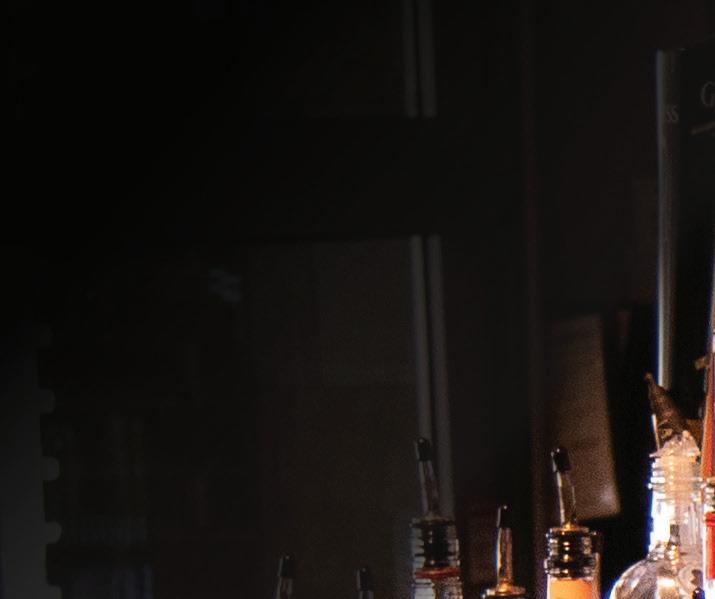





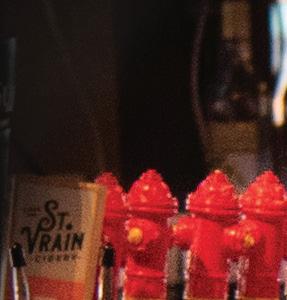
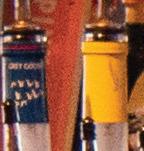







1905 Colorado Ave., Boulder
303-492-3814
Internationalfilmseries.com






The International Film Series has been providing a unique cinema experience for Boulder since its inception in 1941 and is the only place in Boulder where you can still see movies on 35mm film. We also regularly have guests at the films that can include the filmmakers themselves.
Curated by an actual human, the goal with the selections is to provide a wide variety of movie-going options for all tastes. From the latest indie darling, to a deep arthouse cut from decades past, to the film event of the year, no matter what you’re into there’s something for you to experience on the big screen!
540 Main St., Longmont
303-702-0881

The Pumphouse Brewery opened its doors in May of 1996 as an independently-owned, single location brewpub. In October 2004, it expanded with the addition of The Red Zone, which provided Longmont with a first-rate sports bar. When its founders retired in 2022, the Pumphouse began its path toward employee ownership facilitated by Teamshares. The Pumphouse is a family-friendly restaurant with games for the kids and an outdoor patio where our four-legged friends are always welcome. The restaurant is known for its large and diverse menu of boldly-flavored food served in generous portions, its extensive cocktail list, and its award-winning beers which are brewed on-site and served fresh everyday.
2355 30th St., Boulder
303-440-1002









Perennial BOB winner Full Cycle is the endurance sports hub for our outdoor-crazed city. Once a funky little bike shop, they’ve become a world-class multisport performance, demo bike and ski center. The built-in café hosts live events most nights and can also host private event parties.
By day, get expert advice and service on all things bike. Make new friends on a group ride. Book an expert fit. Or grab a Fleishman’s bagel sandwich, a cappuccino, or a craft beer on their patio.
At night, join a trivia competition, or live comedy show. On weekends, enjoy their Jazz Supper Club and catch Hazel Miller, Rico Jones or other legends for an intimate show.

1890 30th St., Boulder 303-444-4232
info.boulder@yogapod.com
2201 Ken Pratt Blvd., Longmont 720-815-4435
info.longmont@yogapod.com
6335 S. Broadway, Boulder 303-484-1839
info.southboulder@yogapod.com yogapod.com

Thank you, Boulder, for 15 incredible years! As we’ve grown from one small studio to three thriving locations every class remains grounded in gratitude — for our teachers, staff and students who create our vibrant Yoga Pod community. We’re proud to offer over 280 classes every week at our 30th Street, South Boulder and Longmont studios. As a locally owned and operated studio, we offer more than just yoga classes — we foster connection, create space for mindfulness and strengthen overall wellness through the transformative practice of yoga.

635 S. Broadway, Unit D, Boulder 720-515-6268
kinesisdance.com
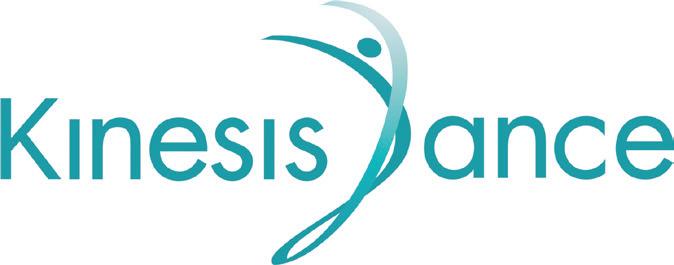
Located in the Table Mesa Shopping Center in South Boulder, Kinesis Dance is a beacon of creativity and movement. This dynamic dance school offers an exhilarating array of classes for everyone, from tiny tots aged two to spirited adults. Beyond dance classes, Kinesis Dance hosts vibrant summer camps, school day-off camps, and unforgettable birthday parties, making it a hub of activity all year round. With a calendar full of community events, there’s always something exciting happening. Plus, all first-time students receive a free trial class! The expert instructors are not just teachers; they are mentors who inspire and ignite the dancer within. Join Kinesis Dance for a fabulous journey of growth, community and joyous expression!






1117 Pearl St., Boulder
303-284-4473
highcountryboulder.com

Come for the food, stay for the vibes! High Country on Pearl Street is Boulder’s go-to spot for fresh, seasonal eats with a New Western twist. Locally owned by the family that brought you Gemini, High Country showcases the best of Colorado’s ingredients, serving creative, flavor-packed dishes that celebrate the region and support local farms and ranchers. The menu offers something for everyone, from vibrant bowls to elevated comfort food and curated cocktails to refreshing zero-zero drinks! It’s the perfect place to enjoy a delicious meal that’s big on taste and inspired by the bold spirit of Colorado.
2907 55th St., Unit 1, Boulder
303-449-6632

Hoshi Motors, proudly serving Boulder, Colorado for over 40 years, is a trusted car shop specializing in Honda, Acura, Toyota and Subaru vehicles. We prioritize the care of both our customers and staff, fostering a welcoming and respectful environment. Our experienced team is dedicated to delivering high-quality service with integrity, our flower filled waiting area and Baby Goat Coffee shop add to the experience. At Hoshi Motors, we value lasting relationships and are proud to be a cornerstone of the community, combining expertise with a personal touch to meet all your automotive needs.
906 Pearl St., Boulder
303-443-7711
farfels.com

Farfel’s Farm, located at 906 Pearl Street in Boulder, has been a popular dog and cat boutique since 2005. Farfel’s is known as The Pets’ Republic of Boulder™. They advocate for animal welfare, human rights, the environment, and social justice. Farfel’s Rescue, which started with a street dog named Ella and her 6 puppies, began in 2003 and went on to become an integral part of the business. The rescue works alongside the boutique to save lives and provide premium products for both rescue animals and the local community. Farfel’s Farm offers nutrition, fashion, toys, and holistic care for dogs and cats, our most important customers.















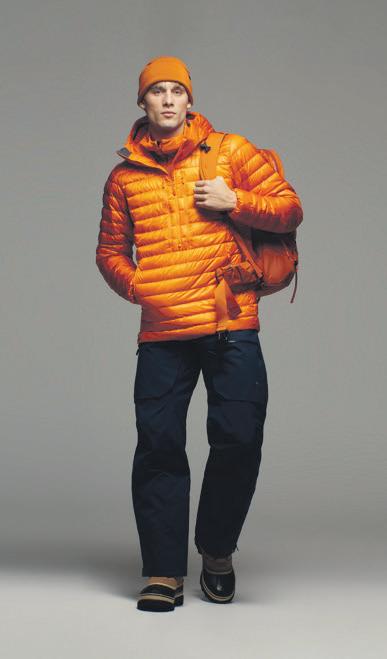



Explore our latest insulation products for winter
Drop by our store at
and learn about
for a
Welcome to nature

STORY AND PHOTOS BY NATALIE
KERR
Audience members take their seats in velvet covered chairs at the Savoy Denver, ready to witness a poignant opening performance of Hope and Gravity by the Boulder Ensemble Theatre Company (BETC). The lights dim and actors rush on stage with lines memorized down to the smallest inflections, their every movement intentionally choreographed.
Behind the curtain, another performance is happening.
A stage manager calls cues from a booth as lighting technicians expertly angle spotlights overhead. Wardrobe designers prepare racks of costumes for quick changes that will transform actors into the characters they portray. The props team triple checks that each and every item is exactly where it should be, so when an actor reaches for the coffee mug or the coat rack, they hardly have to look to know it’s there.
All the while, Director Josh Hartwell is watching from the front row, mentally taking notes on all the tweaks they will make during tomorrow’s rehearsal. As a playwright, director and actor, it’s no exagger-
ation to say Hartwell lives and breathes storytelling. His job is to get a play from page to stage as best as he possibly can with the materials and time at his disposal.
It’s not a job he can do by himself. When preparing a show like Hope and Gravity — a comedic, non-sequential play requiring five actors to portray nine characters in four distinct settings — the ideas, skills and coordination that comes from the rest of the cast and crew is essential.
“It’s such a collaboration,” Hartwell says. “There are directors who want to be always right and who want to have all the answers. I know I don’t have all the answers.”
Hartwell leans on BETC’s behind-thescenes crew who make these live performances possible. To better understand their highly technical jobs and the magic they bring to the stage as contract employees working for various theater companies throughout the region, Boulder Weekly went behind the curtain to learn more about the delicate dance of bringing these works of art to life.
Wessie Simmons is as close to glue as a human can get. As a stage manager, Simmons is integral to a show’s success from the moment BETC decides to put on a performance.
A month before rehearsals begin, Simmons meets with the cast and crew


to establish a vision for the show. From there, she works with the assistant stage manager to establish rehearsal plans, arrange costume fittings and communicate ideas to prop, sound and light crews.
Then the real work begins. Simmons is responsible for determining the flow and focus of rehearsals and scheduling time for actors to meet with artistic crew.
All the while, she is taking notes on every little change: If the director decides they need a different light scheme for a scene, Simmons communicates that change to the light, costume and prop departments, and to the actors who might need to make adjustments in kind.
Without the CU Boulder theater alum, those essential tweaks could easily fall through the cracks.
“It’s all the day-to-day tasks of making sure the director is happy, making sure the actors are safe and happy, making sure the team who are not there are communicated with,” Simmons says. “It’s a matter of making sure all these different wheels run smoothly.”
When a show opens, the jobs of the director and artistic team are more or less done, aside from the occasional snafu. But the stage manager remains, up in the booth calling cues and ironing out wrinkles when a transition is delayed or music cuts too early.

Meanwhile, Simmons relies on the assistant stage manager to keep the chaos of the backstage functioning and move props and sets during scene transitions. Without each person being on top of their role, the show couldn’t function.
“No person is more important than anyone else,” Simmons says. “All these people are equally making this project happen — everyone is so important in the world of theater.”
Hope and Gravity features five actors playing nine different characters.
Alexandra Ligh has the monumental task of sourcing costumes that help the audience understand who each character is when the only physical change is the clothes they wear.
Ligh meets with the director on a given show to discuss design ideas and logistics, like quick-changes — from there, it’s up to her to find costumes that meet those needs.
The Austin, Texas, transplant who now lives in Longmont scours university theater departments, online stores and thrift shops for pieces that fit her designs and also physically fit the actors. During rehearsals, she sources feedback from the director and actors and makes necessary changes.
Plays set during historical time periods or in distinctive locations involve deep research to source accurate clothing. But designing for a play like Hope and Gravity, which takes place in a nondescript, modern-day American setting can be equally challenging in its open endedness.
“There’s just so many resources, there’s so much inspiration,” Ligh says. “There’s many ways that we could go with contemporary costumes, and everyone always has an opinion on what the costumes should look like, because it’s the current time period we’re all living in.”
The director is like the captain of the ship, and their vision is a major guide for Ligh’s decisions during the design process. But once costumes are finalized, she hands them off to the backstage crew who make sure they are organized and prepared for the actors before each show.
“They’re kind of the unseen people, literally behind the scenes,” Ligh says. “It’s very easy to see the actors and see the director and see the producer when you go to attend a show, but you might not always think about the people who are there working at night, on every performance.”
A wine glass on a table might seem like a simple detail, but a prop designer has spent abundant time deciding exactly what kind of wine glass works best. It could be made of glass (risky!) or plastic (doesn’t clink!); it could be stemless, crystal clear or ornately decorated. The props designer may go through a dozen different wine glasses before finding the wine glass.
As a props designer, Katie Hopwood uses the script as a roadmap for what objects a show will need, but her imagination is a guiding force, too. As she and the director watch scenes come together, they often add or change props to help the story sing.
“Hope and Gravity is a comedy, so things aren’t exactly written in the script, but the director and I will have an idea of something we should do with the props to add comedic effect,” Hopwood says.
Each night after rehearsals, she reads the stage manager’s notes to see what adjustments might be needed for the

show. Sometimes these are big changes, like an entirely new prop, or more subtle alterations, like a different size or color.
Actors rehearse with props, but Hopwood only sees the show in full during the design performance, when the artistic crew discusses how scenes look and pitch any last-minute ideas.
“Nothing’s solidified until there’s an audience,” she says. “I might pick something at the beginning, and then they’re like, ‘That’s not working for what we’re doing,’ and I have to find something different.”
Hopwood, who started with BETC in 2022, loves working on contemporary shows and getting to play around with a wide range of props, hearing other people’s thoughts on what suits a character or setting, and getting to flex her creativity — especially at BETC, where she says the cast and crew are highly invested in the success of each production.
“I work on a lot of BETC shows, and all the designers are always great to collaborate with,” Hopwood says. “Honestly, the Colorado theater community in general, I’ve had great experiences with.”
The stagelight shifts, a bright warmth floods the stage, and audience members find themselves clutching their chests at a heartfelt moment, overcome with the emotion of the scene.
When Erin Thibodaux lights a performance, she is thinking about exactly
what angle, hue and tone will help tell the story. The size of shadows or timing of the lights can either pull the audience out of a moment — like if lights come up before a transition is done — or help the emotion of a scene hit them squarely in their feels.
The award-winning designer and Colorado native uses the script to note the show’s worldbuilding needs to guide her lighting decisions, but it’s only when tech rehearsals start that she can see the payoff. That leaves her with a short amount of time to make changes based on whether the light meshes with the sets, costumes and tone of each scene.
“It’s really important to work with the other designers to make sure you’re on the same page. For instance, I’m not picking a light color that clashes with the set or with the costumes,” Thibodaux says. “Oftentimes, there are collaborations where there are lights built into the set or built into props that need to light up, and then collaboration with the director to make sure I’m executing their vision.”
Once the show opens, Thibodaux hands over light controls to the stage manager and light board operator, and trusts that her designs are exactly what the show calls for.
“They help create the world the audience sees. They help create a world the actors can play in and live in,” Thibodaux says. “Having all these behind-thescenes roles really helps bring the play to life in a way I don’t think a lot of people realize.”


6-7:15 p.m. Thursday, Jan. 30, 1300 Yellow Pine Ave., Unit B, Boulder. Free for Yoga Pearl members, $32 nonmembers
If you’re wound tighter than a cellist’s bow, take a load off at this all-levels slow vinyasa flow “designed to take care of the body for increased functionality and joy.” The class will be accompanied by cellist Sophie Stubbs for a night that’s sure to fill your cup.

8-9:15 p.m. Friday, Jan. 31 Longmont Public Media, 457 4th Ave. $35
Will this hilarious, whacky improv comedy show leave you in stitches? Yes and it’s filmed in front of a live studio audience, so the pressure is on. Featuring Longmont’s Front deRanged and Denver’s Sandlot Improv, Longmont L!ve showcases some of the best improv talent in Colorado, so be sure to keep them on their toes with your wildest suggestions.

6-8 p.m. Friday, Jan. 31, Longmont Museum, 400 Quail Road. $8
Be among the first to experience A Graphic Journey: Prints by Pablo Picasso, featuring nearly 60 works by the essential French modernist made between 1923 and 1972 during this opening reception. Dress up for “a night in Paris” with charcuterie plates and a cash bar featuring signature French cocktails.

GOLDEN Friday, Jan. 31-Sunday, Feb. 2, Parfet Park, 725 10th St., Golden. $15-$95
Join your fellow beer and banjo heads in Vallhalla — Golden, that is — for a weekend of non-stop pickin’, sippin’ and pillagin’. Clad yourself in armor for this annual viking-themed bluegrass festival in the name of Ullr, the Norse god of winter, featuring music from Todd Sheaffer, Coral Creek, Great American Taxi and more.

5-9 p.m. Friday, Jan. 31, Erie Ice Rink, 575 Kattell St. Free
Enjoy the last few weeks of Erie’s seasonal ice skating rink. The first 25 skaters in the door get on the rink for free, thanks to local eatery Piripi. (Everyone else pays: $10 for adults and $8 for kids.) Admission includes free skate rental.

COEUR A LA CREME: CHEESE MAKING AND GOAT GREETING
1-3 p.m. Saturday, Feb. 1, The Art of Cheese, 505 Weaver Park Road, Suite E, Longmont. $75
There’s one simple way to any gal’s heart. You guessed it, cheese. Grab your sweetie and head to this workshop where you’ll learn to make a traditional, heart-shaped French dessert from scratch, with love. Then, you’ll head down to the barn for some head scratches with the dairy goats.
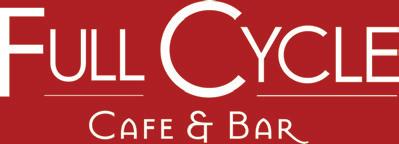

10 a.m. to 12:30 p.m. Sunday, Feb. 2, Mud Lake, 2034 County Road 126, Nederland. Free
No, it isn’t spring yet. But that doesn’t mean you can’t find signs of season’s change during this family friendly adventure at Mud Lake. Bundle up and join volunteer naturalists for a scavenger hunt, snow art and outdoor games and learn about high-country winter ecology. Registration required: bit.ly/ MudLakeBW

Sunday, Feb. 2, Bohn Park, 199 2nd Ave., Lyons. Prices vary.
Show Old Man Winter what you’re made of at this mixed terrain endurance run or ride that promises “bragging rights and stories to tell your grandchildren.” Bikers can opt for a 23-mile, 40-mile or 75-mile course; runners can race a 5K or 10K — or do it all with a bike/run combo. After what’s sure to be a chilly race, warm up with an all-out bash including bonfires, s’mores, hot soup, cold drinks and live music.

8 a.m. Sunday, Feb. 2, OSMP Ranger Cottage, 900 Baseline Road, Boulder. Free
Join Boulder’s beloved yellow-bellied marmot — the nation’s most accurate prognosticating rodent — to see when spring will arrive. Will Freddy see his shadow? Will he arrive by zip line, bobsled or canoe? Brave the cold and find out. Or stay at home and join the livestream: bit.ly/GroundhogDayBW. Freddy won’t judge you either way.

TURNTABLE TUESDAY
7-10:30 p.m. Tuesday, Feb. 4, VisionQuest Brewery, 2510 47th St., Suite A2, Boulder. Free
Head to VisionQuest Brewery in Boulder for this weekly vinyl-only DJ event in the taproom. From house and techno to hip-hop and drum-n-bass, you won’t want to miss this community hang featuring killer music and craft libations.

4-6 p.m. and 6:30-8:30 p.m. Thursday, Feb. 6, Longmont Museum, 400 Quail Road. $40
Kick off Black History Month by celebrating the life and legacy of legendary freedom fighter Harriet Tubman during this hands-on embroidery workshop at the Longmont Museum. Nonalcoholic beverages and snacks will be available for purchase at first session, with beer, wine and seltzer offered in the evening.


6
LAFAYETI DAY
10 a.m. to 8 p.m. Thursday, Feb. 6, throughout Lafayette. Find participating businesses: lafayetiday.com/citywide-directory
FRIDAY • 01/31
GABRIEL SANTIAGO QUINTET
SATURDAY 02/01
Enjoy discounts and specials all day at small businesses throughout the 26… the 80026, that is: Lafayette’s zip code. Created to celebrate the city’s mom and pops, you can also support a good cause: Liquid Mechanics is donating 26% of beer sales to Sister Carmen. JAZZ SUPPER CLUB
URDAY AZEL
HAZEL MILLER JAZZ BAND



THURSDAY, JAN. 30
JACKSON CLOUD. 6 p.m. Bricks on Main, 471 Main St., Longmont. Free
MOUNTAIN DUO 6 p.m. Bootstrap Brewing Company, 142 Pratt St., Longmont. Free
HEADSLUG WITH WHEN THE SUN EXPLODES AND PLASTIK MYSTIK 7 p.m. Hi-Dive, 7 S. Broadway, Denver. $10
STEVE & THE CRUISERS 7:30 p.m. Nissi’s, 1455 Coal Creek Drive, Unit T, Lafayette. Free
HOT LIKE MARS WITH FRUTA BRUTAL. 8 p.m. Velvet Elk Lounge, 2037 13th St., Boulder. $19
MOONRADISH WITH THE BUZZ AND DYLAN KISHNER BAND 8 p.m. Globe Hall, 4483 Logan St., Denver. $19
JEREMY MOHNEY AND HIS ORCHESTRA 8 p.m. Roots Music Project, 4747 Pearl, Suite V3A, Boulder. $19
FRIDAY, JAN. 31
REX PEOPLES WITH XFACTR 6 p.m. Bootstrap Brewing Company, 142 Pratt St., Longmont. Free
RED ROCK VIXENS WITH JARED CARBONE. 6 p.m. Roots Music Project, 4747 Pearl, Suite V3A, Boulder. $15
THE B SIDES 6 p.m. Bricks on Main, 471 Main St., Longmont. Free
A TRIBUTE TO PHIL LESH FEATURING THE BIG BOTTOM BAND 7 p.m. Caribou Room, 55 Indian Peaks Drive, Nederland. $25
MAX PLAYS DEAD 7 p.m. The Riverside, 1724 Broadway, Boulder. $15
COLORADO PIANO TRIO. 7:30 p.m. Center for Musical Arts, 200 E. Baseline Road, Lafayette. $15
YACHTY GOT BACK 7:30 p.m. Nissi’s, 1455 Coal Creek Drive, Unit T, Lafayette. $15
RENÉE FLEMING. 7:30 p.m. Macky Auditorium, 1595 Pleasant St., Boulder. $30
A PLACE FOR OWLS WITH BROKEN RECORD AND BUDDY BENCH 8 p.m. Marquis Theater, 2009 Larimer St., Denver. $19
TOUBAB KREWE. 8 p.m. Velvet Elk Lounge, 2037 13th St., Boulder. $26
SULTAN + SHEPARD WITH CHRISTIAN LÖFFLER AND CATCHING FLIES 8 p.m. Mission Ballroom, 4242 Wynkoop St., Denver. $49
NETHER HOUR WITH AUGUSTUS 8 p.m. Fox Theatre, 1135 13th St., Boulder. $22
WINTER WALKABOUT MUSIC SHOWCASE 2 p.m. Throughout downtown Longmont. $35
CELTIC HARP CONCERT 3:30 p.m. NoBo Corner Library, 4600 Broadway, Boulder. Free
COLORADO JUNCTION STRING BAND 5:30 p.m. Left Hand Brewing Company, 1265 Boston Ave., Longmont. Free
LA WILDFIRE MUSIC BENEFIT 5 p.m. Spirit Hound Tasting Room, 4196 Ute Highway, Lyons. Free (donations accepted)
CAIDEN WOOLERY. 6 p.m. 300 Suns Brewing, 335 1st Ave., Unit C, Longmont. Free
TINY TOMBOY WITH BARBARA AND DRY ICE 8 p.m. Marquis Theater, 2099 Larimer St., Denver. $19
FRANCISCO RUIZ 7:30 p.m. Boulder Valley Unitarian Universalist Fellowship, 1241 Ceres Drive, Lafayette. $23
CRICK WOODER. 7:30 p.m. Longs Peak Pub, 600 Longs Peak Ave., Longmont. Free
JJ GREY & MOFRO WITH LUCERO. 7:30 p.m. Mission Ballroom, 4242 Wynkoop St., Denver. $53

Front Range twee-pop pioneers Dressy Bessy perform with support from The Milk Blossoms and Bellhoss at Denver’s Hi-Dive on Feb. 1. The local favorites take the stage following the release of their most recent LP, Faster Faster Disaster, out now via Yep Roc Records. Hit the QR code for a Boulder Weekly feature on the band before you go. See listing for details
CHARIOTS & CHARIOTEERS WITH DEBORAH SOLO TRIO AND THE DOLLHOUSE THIEVES. 7:30 p.m. Roots Music Project, 4747 Pearl, Suite V3A, Boulder. $15 STORY ON P. 14
PAIZLEY PARK: A TRIBUTE TO PRINCE. 8 p.m. The Louisville Underground, 640 Main St., Longmont. $20
DRESSY BESSY WITH THE MILK BLOSSOMS AND BELLHOSS. 8 p.m. Hi-Dive, 7 S. Broadway, Denver. $17 BW PICK OF THE WEEK
CLAY STREET UNIT WITH MADELINE HAWTHORNE. 8 p.m. Fox Theatre, 1135 13th St., Boulder. $25
SUNDAY, FEB. 2
BOULDER FRIENDS OF JAZZ JAM SESSION 1 p.m. Avalon Ballroom, 6185 Arapahoe Road, Boulder. $12
LOCO UKULELE JAM 2 p.m. Bootstrap Brewing Company, 142 Pratt St., Longmont. Free
CRICK WOODER 9 p.m. Southern Sun, 627 S. Broadway, Boulder. Free
MONDAY, FEB. 3
MUSIC BINGO 6:30 p.m. Johnston’s Station, 1111 Neon Forest Circle, Longmont. Free
SMALL HOUSES WITH CLEMENTINE WAS RIGHT, CASPAR MILQUETOAST AND AL AMEDA 7 p.m. Hi-Dive, 7 S. Broadway, Denver. $13
TUESDAY, FEB. 4
TURNTABLE TUESDAY. 7 p.m. VisionQuest Brewery, 2510 47th St., Suite A2, Boulder. Free
WUNDERHORSE WITH DEUX VISAGES 8 p.m. Bluebird Theater, 3317 E. Colfax Ave., Denver. $32
WEDNESDAY, FEB. 5
VELVET VINYL PRESENTS “GIRLS PUT YOUR RECORDS ON” LADIES NIGHT 5 p.m. Velvet Elk Lounge, 2037 13th St., Boulder. Free
DANNY SHAFER 6 p.m. Rosalee’s Pizzeria, 461 Main St., Longmont. Free
VIC DILLAHAY WITH DOUG CARMICHAEL. 7 p.m. Dry Land Distillers, 519 Main St., Longmont. Free
CU BOULDER SOUNDWORKS. 7:30 p.m. Grusin Music Hall, 1020 18th St., Boulder. Free





Want more Boulder County events? Check out the complete listings online by scanning this QR code.

BY ROB BREZSNY




ARIES (MARCH 21-APRIL 19): In medieval Europe, beekeepers made formal reports to their hives of significant events in the human world, like births, deaths, marriages and departures. They believed the bees needed to be continually informed so as to ensure robust honey production. The practice was called “telling the bees.” Let’s make this an inspiring story for you in the coming weeks, Aries. I invite you to keep your community fully apprised of what’s happening in your life. Proceed on the assumption that sharing your plans and changes with others will generate harmony and support. Like the beekeepers, you may discover that keeping your community in the loop will strengthen your bonds and sweeten your endeavors.



TAURUS (APRIL 20-MAY 20): A regular guy named Jesse Ronnebaum bought an old painting at a yard sale for 50 cents. For the next 10 years, it hung on the wall in his living room. Then he noticed a dim inscription on the painting that suggested maybe it was more valuable than he realized. Consulting an art dealer, he discovered it was an unusual composition that featured the work of seven prominent artists — and was worth a lot of money. Ronnebaum said, “Years of struggling, barely making bills, and the whole time there’s $50,000 hanging over my head, literally.” I am predicting metaphorically comparable events unfolding in your life during the coming months, Taurus. Hidden value will no longer be hidden. You will potentize neglected sources of wealth and finally recognize subtle treasures.
GEMINI (MAY 21-JUNE 20): In Namibia’s arid grasslands, fairy circles periodically emerge. They are highly regular rings of bare land encompassed by vegetation. What causes them? Supernatural entities, as believed by the local people? Sand termites or hydrogenloving microbes, according to a few scientists? As yet, no definitive explanation has emerged. I love that! I cherish mysteries that thwart attempts at rational explanation. In accordance with astrological omens, Gemini, I invite you to specialize in tantalizing and unsolvable enigmas in the coming weeks. Your soul needs rich doses of provocative riddles, mysterious truths and fun puzzles. Exult in the liberating declaration, “I don’t know!”
CANCER (JUNE 21-JULY 22): Wherever you wander, be alert for signals that remind you of who you used to be. This will stimulate your creative speculation about who you want to evolve into during the next few years. As you ruminate about your history, you will get inspirations about who you want to become. The past will speak vividly, in ways that hint at your best possible future. So welcome clues from people who are no longer alive. Be receptive to old allies and influences that are no longer a central part of your world.
LEO (JULY 23-AUG. 22): “Crown shyness” is a phenomenon seen among some trees like lodgepole pines. In forests, they grow big and strong and tall, yet avoid touching each other at their tops. This creates canopies full of pronounced gaps. What causes this curious phenomenon? First, if branches don’t brush up against each other, harmful insects find it harder to spread from tree to tree. Second, when winds blow, branches are less likely to collide with each other and cause damage. There’s a third benefit: More sunlight penetrates to the forest floor, nourishing animals and other plants. I propose that you adopt crown shyness as a metaphor for your use, Leo. Express your beauty to the max — be bold and vivid and radiant — but also provide plenty of space for your allies to shine. Be your authentically amazing self, but create boundaries that allow others to be their amazing selves.
VIRGO (AUG. 23-SEPT. 22): Some astrologers assert that you Virgos suffer from an ambition deficit. They authoritatively assert that a fiery aspiration to achieve greatness never burns hot within you. But in the coming months, I will work to show you a different perspective. Let’s start now: Many of you Virgos are highly
skilled at being self-sufficient. But sometimes this natural strength warps into a hesitancy to ask for help and support. And that can diminish your ability to fulfill your ambitions. My goal will be to celebrate and nurture your self-sufficiency even as I coach you to be dynamic about gathering all the assistance you can.
LIBRA (SEPT. 23-OCT. 22): Life is not fair. In the coming days, you will be odd proof of this fact. That’s because you are likely to be the beneficiary of uncommon luck. The only kind of karma that will be operating in your vicinity will be good karma. X-factors and wild cards will be more available to you than usual. Your timing will be impeccable, and your intuition will be extra incisive. You may even be tempted to theorize that life is conspiring to bring you an extra supply of meaningful experiences. Here’s the clincher: If anyone in your sphere is prone to feeling envy because you’re flourishing, your charm will defuse it.
SCORPIO (OCT. 23-NOV. 21): Here are three questions to ruminate on: 1. What resources are you afraid you will run out of or squander? 2. What if your fear of running out or squandering these resources obstructs your ability to understand what you need to know and do so that you won’t run out or squander them? 3. How can you dissolve the fear and feel confident that the necessary resources will keep steadily flowing in, and you will use them well?
SAGITTARIUS (NOV. 22-DEC. 21): Most stars have at least one companion star, sometimes two. Our sun, which is all alone, is in the minority. Astronomers have found evidence that our home star once had a companion but lost it. Is there any chance of this situation changing in the future? Might our sun eventually link up with a new compatriot? It’s not likely. But in contrast to our sun’s fate, I suspect that 2025 will offer you a significant diminishment in your personal loneliness quotient. If you crave more camaraderie and togetherness, the coming months will be a favorable time to seek them out. Your meditation question: What’s the opposite of loneliness?
CAPRICORN (DEC. 22-JAN. 19): In the coming weeks, your authenticity will be your greatest strength. The more genuine and honest you are, the more life will reward you. Be alert for situations that may seem to demand camouflage when in fact they will ultimately reward your complete transparency. You will be most powerful and attractive as you allow yourself to be fully seen. You can even use your vulnerability to your advantage. Be openly, clearly, unabashedly yourself.
AQUARIUS (JAN. 20-FEB. 18): As I envision your life in the coming weeks, I am moved to compare you to certain birds. First, there will be similarities between you and the many species that can literally perceive Earth’s magnetic fields, seeing them as patterns of shadow and light overlaid on their regular vision. You, too, will have an uncanny multi-dimensional awareness that helps guide your travels. Secondly, Aquarius, you will be like the migrating songbirds that recalibrate their internal compass every day when the sun sets. In other words, you will make steady efforts to ensure that your magical ways of knowing are grounded in earthy rhythms.
PISCES (FEB. 19-MARCH 20): In some Polynesian cultures, there is a belief that one’s mistakes, including excessive anger, can cause physical sickness. Hawaiians traditionally have employed a ritual remedy for such ills called ho’oponopono. It includes acts of atonement, forgiveness and correction. It may even involve a prayer conference where all the people involved talk about their mutual problems with respect and compassion, seeking solutions and restitution. The coming weeks will be a fantastically favorable time for you to carry out your own version of ho’oponopono, Pisces.
1. When and how do I bring up when a stranger smells bad when meeting for a hookup?
Before you ask them to shower — assuming you want them to stay — or after you tell them to leave if they ask for a reason and you feel safe sharing the real reason.
2. Is using a dating app cheating?
A single person wouldn’t be asking me this question — for obvious reasons (no one to cheat on) — which means you’re not single. And if your partner was a stag or a cuck or your relationship was open and you were allowed to be on the apps, you wouldn’t be asking me this question. So, in your case, using a dating app is definitely cheating.
BY DAN SAVAGE

going to use fingers and tongues and toys and vibrators and strap-ons. That will put all the focus on my pleasure for a change — which is only fair — but it will also take the pressure off you.”

3. Could you explain why a 30-yearold man wanting to sleep with 16-year-old girls is NEVER OK to my idiot 30-year-old friend, please. There’s a big difference between “wanting to” and “actually would.” Lots of people, men and women (but mostly men), wanna do things they shouldn’t do (because they’re wrong) and hopefully wouldn’t do (because they’re wrong), and decent people know to keep their mouths shut about things they might think about doing but know they shouldn’t. So, if this 30-year-old man can’t keep these thoughts about wanting to sleep with 16-year-old girls to himself — if he insists on sharing them — then he’s not a decent guy, and you shouldn’t be his friend.
4. How do you support a partner with erectile dysfunction when you’re deeply frustrated that sex is now entirely about saving his precious erection?
The most supportive possible thing you could do is say, “Hey, we’re gonna have sex tonight without you even taking your cock out of your pants. We’re
He might react negatively at first, but hold your ground. And if he can get hard and get himself off with his own hand or one of your vibrators, he’ll come to appreciate nights when everything doesn’t depend on his precious erection.
5. How does one get a prolapsed asshole?
Practice, practice, practice.
6. How do I turn off my newborn mom brain long enough to relax and have some good orgasms?
Keep your vibrator within easy reach — set it on your nightstand while you still can (soon you won’t be able to leave your sex toys laying around) — and you’ll be a lot likelier to pick it up and use it if the mood strikes. You’re going to be exhausted for a while, and not having to get out of bed to get your vibrator out of your dresser or even having to lean out of bed to get your vibrator out of the drawer of your nightstand could make all the difference.
Email your question for the column to mailbox@savage.love or record your question for the Savage Lovecast at savage.love/askdan. Podcasts, columns and more at Savage.Love






Dakota Soifer celebrates 15 years of dishing
‘grownup’
food on The Hill
BY JOHN LEHNDORFF
PHOTOS COURTESY CAFE AION
On any given weekend evening, the dining room and patio tables at Cafe Aion are packed with couples and groups of friends savoring paella, swooning over duck confit and pairing Spanish and Moroccan tapas with diverse wines.
It sounds like a typical Boulder bistro. But Cafe Aion wasn’t the kind of culinary destination diners expected to find on The Hill when chef Dakota Soifer opened it in 2010.
According to Soifer, he was looking to do anything but run a full-time restaurant at the time.
“I had recently quit working at The Kitchen, and I was looking for work,” he says. “I saw an ad for a part-time cooking gig at Burnt Toast,” a breakfast and lunch spot in a historic building at 1235 Pennsylvania St. “Because it wasn’t a super busy place, I spent a fair amount of time standing around and daydreaming.”
What Soifer saw was a vision of his own restaurant: “a casual little neighborhood tapas bar.”
When Soifer took over the space soon thereafter, he named his new tapas bar Cafe Aion in honor of Aion Used Books, a store that occupied the campus-adjacent location for many years.
Cafe Aion’s debut menu on April 2, 2010 included a dozen tapas — Spanish small plates — with a beer, wine, sangria and cocktail list served just four nights a week.
“We quickly realized that plan was not going to work financially,” Soifer says. “I had a lot to learn, and that menu was lesson number one.”
Just one item from that first lineup remains on the menu 15 years later: Fried cauliflower with saffron yogurt for dipping.
After some adjustments, Cafe Aion became a destination restaurant for locals and campus visitors.
“People were looking for a full meal, so we started adding some entrees,” Soifer says. Chief among them was paella, because chef Hugo Matheson from The Kitchen dropped off a dozen
rusted, dirty paella pans he found in the basement from a defunct downtown Spanish restaurant.
“Our goal was to be the adult, nicer restaurant on The Hill serving real food — a place for grownups as well as undergrads,” Soifer says.
“We recently had a group of sorority girls who used to come in for Sunday brunch, returning on the 10-year anniversary of graduating.”
From the start, the cafe has had a close relationship with the people working at CU Boulder and attending events on campus.
“The pre-Macky, pre-concert, pre-Shakespeare Festival diners have been our bread and butter,” he says. “We’ll have the Portuguese department in for lunch, and they chatter away in Portuguese. Or we’ll have a Nobel laureate at one table and the guy who discovered absolute zero at another table.”
During the pandemic, Soifer focused on takeout and delivery by adding Boulder Brasserie, a “ghost kitchen” operating out of Cafe Aion offering French bistro favorites like steak frites. Those popular dishes have been folded into Cafe Aion’s current menu, like their lamb Merguez sausage with flatbread, hummus, tzatziki and house-made pickles. Entrees range from duck ragu gnocchi to beef bourguignon. The eatery’s lunch selections include a BLT on brioche and the bestselling Aion Burger with bacon, brie and fresh chips. Brunch features warm doughnuts fried to order as well as shakshuka — an egg-topped Moroccan stew served with toast.
Unlike 15 years ago, Soifer no longer lives at the restaurant, leaving day-to-day operations to Executive Chef Austen Vasquez.
“It’s a little bit of letting go on my part,” Soifer says. “He tries out dishes I wouldn’t have come up with.
“I still love cooking, except now I can cook at home.”
Soifer grew up a part of a foodie family in rural Maine before setting off for Boulder in 1999 to ski and earn an architecture degree at CU Boulder. Cooking at Rumba (now Centro), the West End Tavern and later at San Francisco’s celebrated Zuni Café convinced Soifer to change careers.
The Hill has been through many ups and downs during Soifer’s 26 years in town. Today — with CU’s growing student population, the opening of The Moxy boutique hotel as well as a huge new hotel-conference center set to open across Broadway — The Hill is undergoing another dramatic transformation.
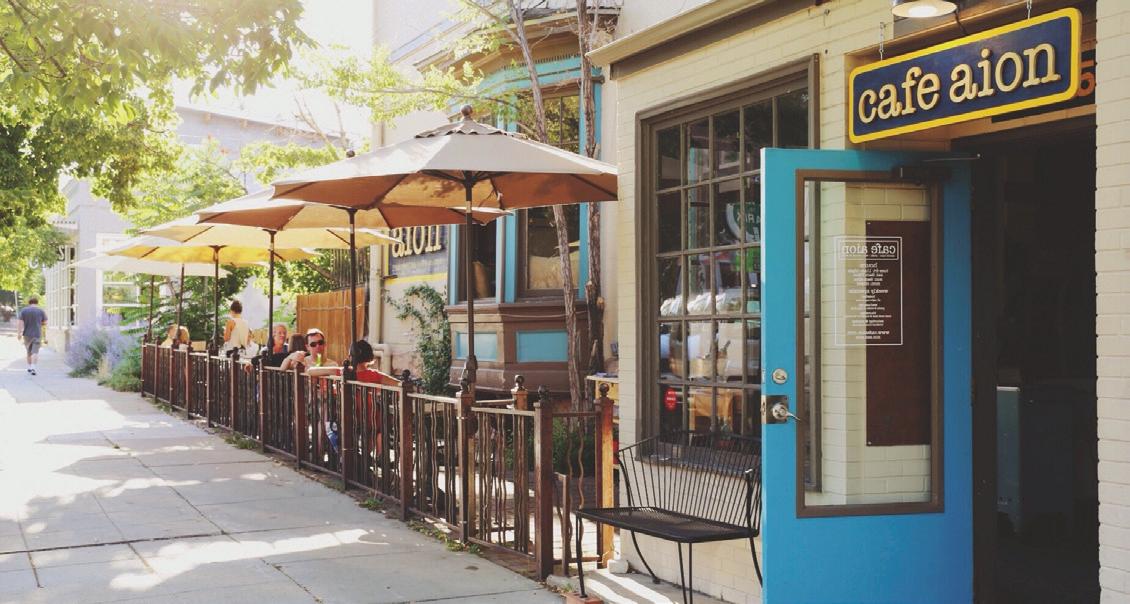





“In terms of restaurants, The Hill dining choices today are great,” Soifer says. Rather than bemoan the increased competition, Soifer is grateful for the renewed energy and multitude of options to attract diners to an area they might otherwise avoid.
“We just re-upped our lease for five more years,” he said. Through it all, the university crowd has remained loyal customers of Cafe Aion.
“I coordinate events and menus here with groups at CU,” Soifer says. “The [teaching assistants] who came
in here when we opened are now tenured faculty.”
Few Boulder restaurants get to celebrate their fifth birthday in business, never mind 15 years of feeding customers like Cafe Aion. Among the other Boulder eateries surviving 15 years or more are: Flagstaff House, Falafel King, Greenbriar Inn, The Sink, Rio Grande, Chez Thuy, Jax Fish House, Sherpas Adventure Restaurant, Frasca Food and Wine, Mustard’s Last Stand and SALT.
The 2025 Restaurant and Chef Award semifinalists for the James Beard Awards were announced last week. Local nominees in various categories include Frasca Food and Wine (Outstanding Restaurant) and Hosea Rosenberg of Blackbelly (Best Chef: Mountain). Denver’s Alma Fonda Fina — sister restaurant to Boulder’s Cozobi Fonda Fina, is a semifinalist in the Best New Restaurant category.
Gunbarrel’s Whistling Boar Provisions is open at 6315 Lookout Road, offering scratch-made pastries, soups, salads and sandwiches on housebaked breads.
Saigon District One Vietnamese Restaurant is open at 599 Crossing Drive in Lafayette, former site of Mono Mono Korean Fried Chicken.
Nana’s Dim Sum & Dumplings on The Hill in Boulder (and in Denver) was included in Yelp’s Top 100 Chinese Restaurants in the U.S. in 2024.
Boulder’s Creature Comforts Cafe hosts a Feb. 1 Year of the Snake eightcourse Chinese New Year tasting menu by Devin Keopraphay, chef at Longmont’s Rising Tiger. Tickets: creaturecomforts.cafe
Boulder Farmers Market icons Patrick and Mara Tcheunou of Bibamba
Artisan Chocolate, will lead a tasting of their Cameroon-sourced chocolates Feb. 6 at Denver’s History Colorado Center. Attendees will also sip Bibamba’s hot chocolate and take chocolates home. Tickets: bit.ly/ ChocolateHistoryBW.
“What we need are more cooks, not more cookbooks.”
— From The Tassajara Cookbook (Shambhala Books) by Edward Espe Brown
John Lehndorff has written Nibbles for the Boulder Weekly since 2015. Read his debut column here: archives.boulderweekly.com/cuisine/nibbles/how-thesausage-was-made










































































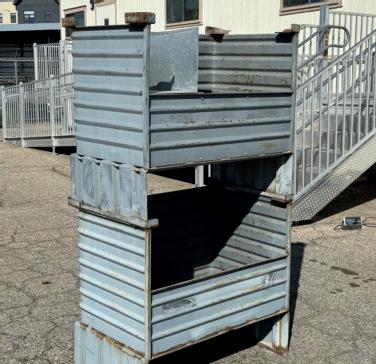

‘ME
The employee-owned cannabis brand you’ve never heard of
BY SHAY CASTLE
When Ethan Shaw was looking to launch a cannabis brand, tons of towns turned him down. He wasn’t yet 21 and so couldn’t hold the license that would allow him to grow, manufacture and sell his product, and they hesitated to approve a business he couldn’t legally operate.
Famously pot-friendly Nederland stepped in and approved Shaw’s operation, and thus began The Flower Collective. It wouldn’t be the last time Colorado’s regulatory framework worked against Shaw’s dream. The Flower Collective operates like an employee-owned business, but on paper, its ownership is more traditional.
their fair share or hold up the entire process, jeopardizing the renewal.
“It’s a little bit of idealism and reality, forcing our idealism to fit into the structure the MED [Marijuana Enforcement Division] sets up for us.”
But the roughly 27 members of the collective share decision-making, operational responsibilities and revenue, via a bonus program funded by a portion of sales commissions.
“All the money goes to us,” he said. “Any money left over is reinvested in the business.”
The Collective operates a grow in De Beque, a town on Colorado’s Western Slope that Shaw selected for its high UV index, low humidity, access to water rights and distance from commercial wine operations, which spray fungicides and herbicides that could contaminate the cannabis crop. The operation pro-


“We wanted to start out with all of us holding ownership, but the way the state operates, the process of renewal requires all owners to be in agreement and in good standing,” Shaw explained. “This gives any one owner the power to leverage themselves more than
duces solvent-free concentrates (extracted without hydrocarbons like butane or propane), dab pens and prerolled joints and blunts they sell primarily wholesale to other businesses.
That business-to-business strategy




has kept The Flower Collective somewhat under the radar. They are planning more direct-to-consumer sales, Shaw said.
“Our reputation has been built about us knowing the budtenders and doing a decent job. We’re figuring out marketing now, so you might see more of us.”
When asked where customers can find Flower Collective products, Shaw directs them to “local mom-and-pop retailers.” The company’s website has a “preferred partners” section featuring five small Colorado dispensaries. (Boulder’s Green Dot Labs is on the list, as are Louisville’s Ajoya and Social Dispensary.)
“They pay us more timely,” he said. “Try to avoid multi-state organizations.”
Shaw is a passionate critic of Colorado’s regulatory framework, which favors larger organizations.
A report from Indiana University professor Boyoung Seo found that
Washington — with its limits on how many licenses a single business can have and a ban on vertical integration — is more favorable to independent operators. As a result, cannabis prices are actually slightly lower.
“Weed had to become big because of the way Colorado treated weed,” Shaw said. “It’s the only way to deal with the way they regulate. The way we’ve pulled it off is nonstop work.”
He believes the Collective’s focus on people over profit will ensure long-term sustainability in a landscape dominated by larger companies. The organization may not grow as fast or make as much money as other companies, Shaw admits, but that isn’t the point.
“There seems to be a model that everyone ignores because that model doesn’t make investors a bunch of money,” he said. “Me and my friends who founded this thing — we’re all still here.”




















































































